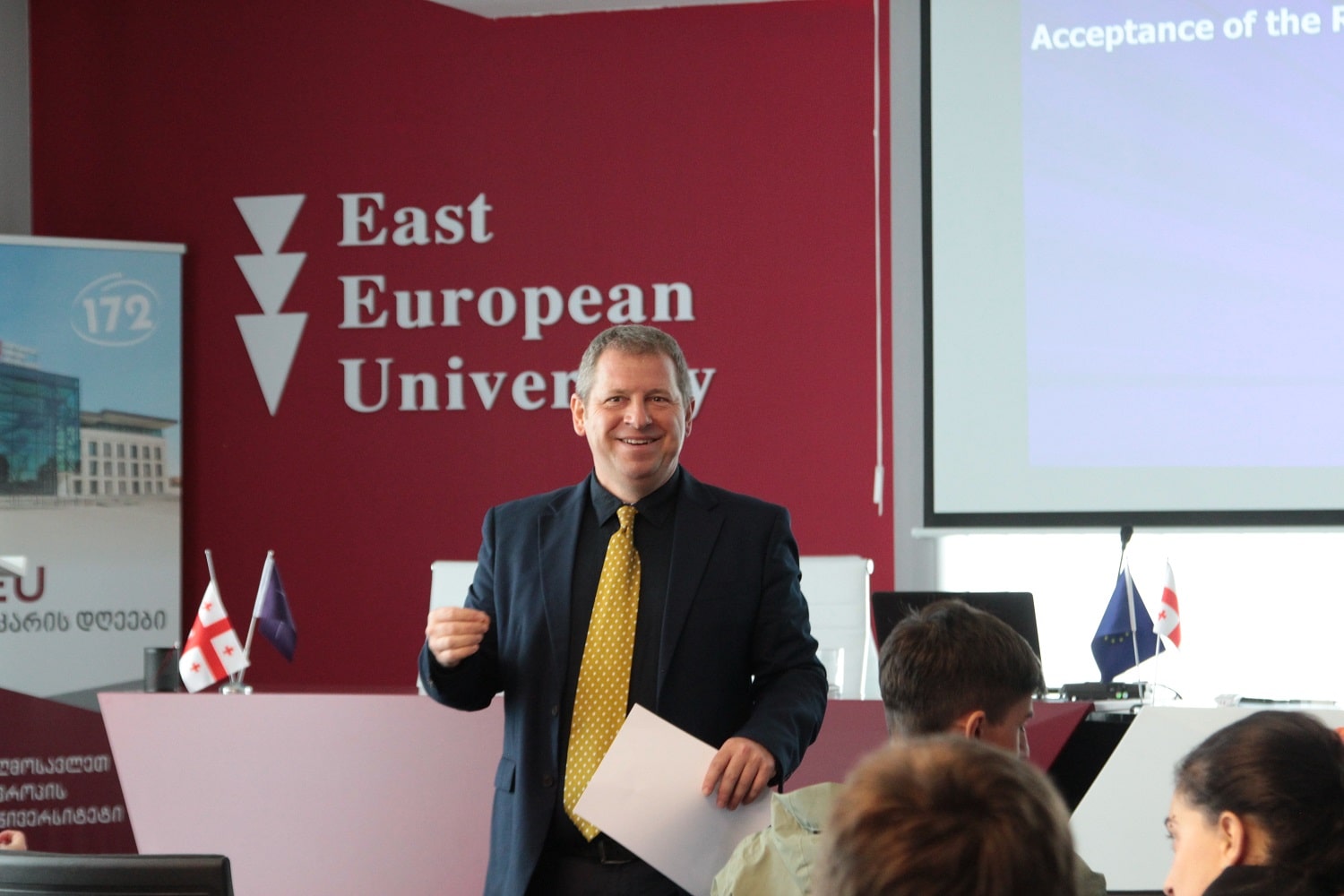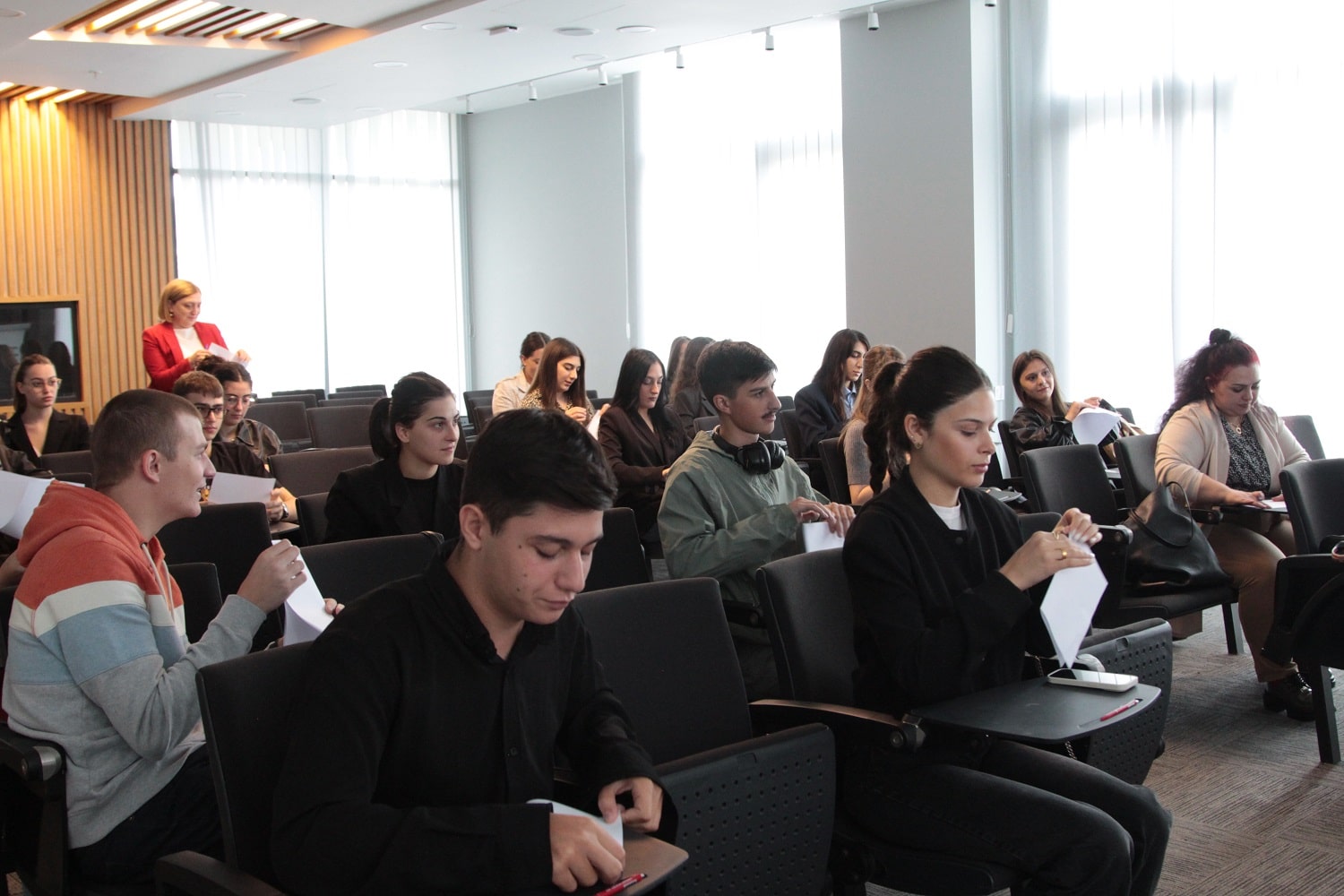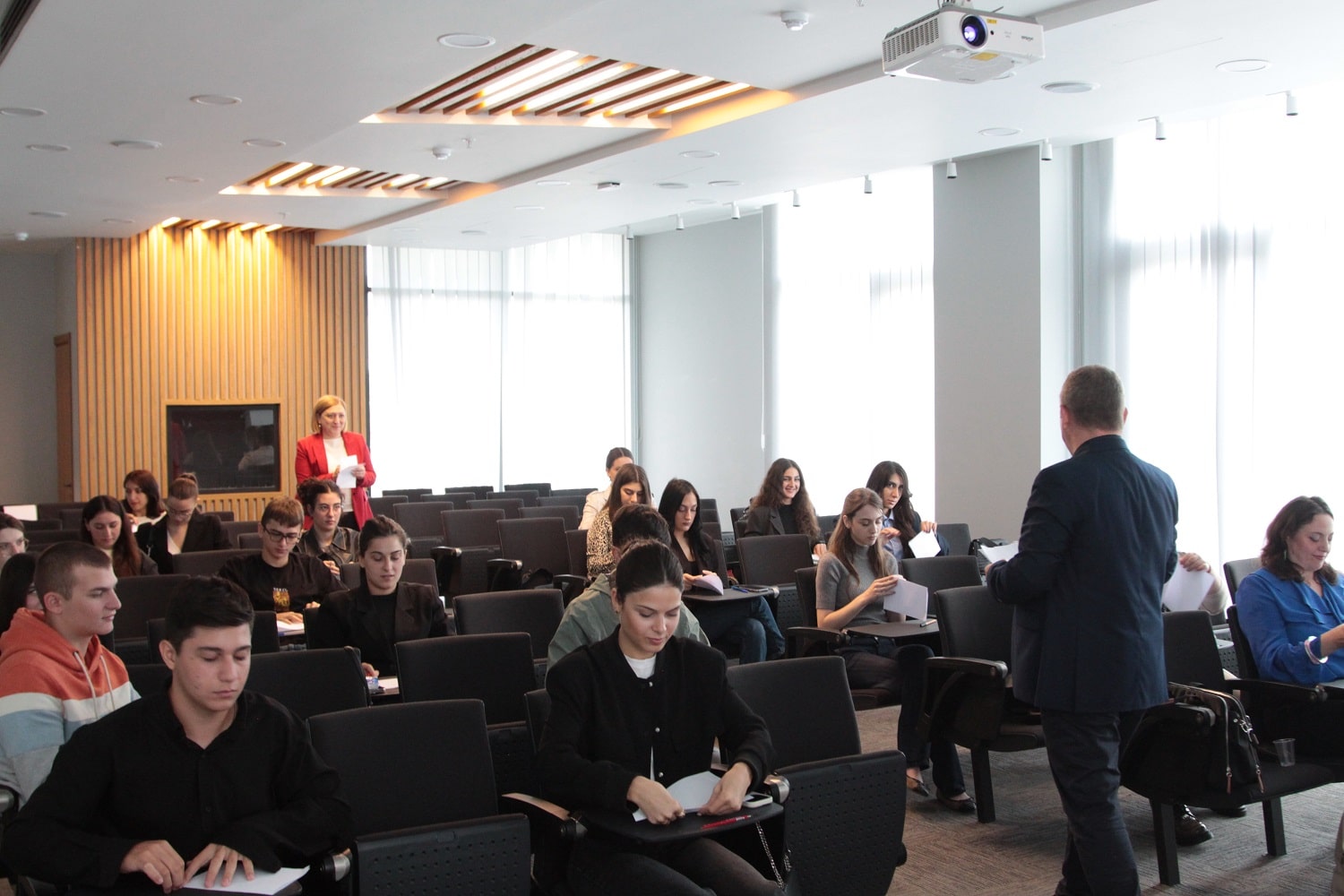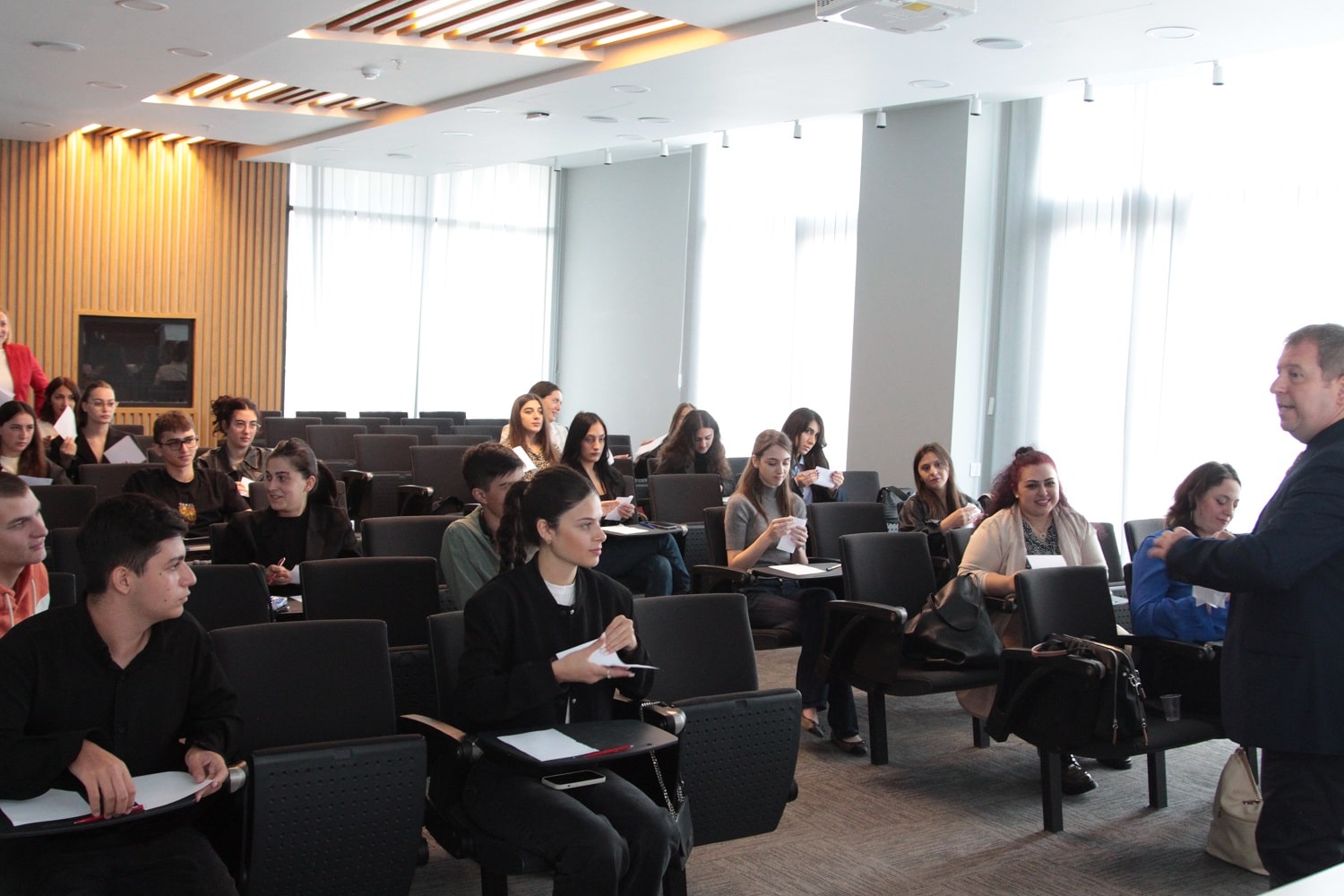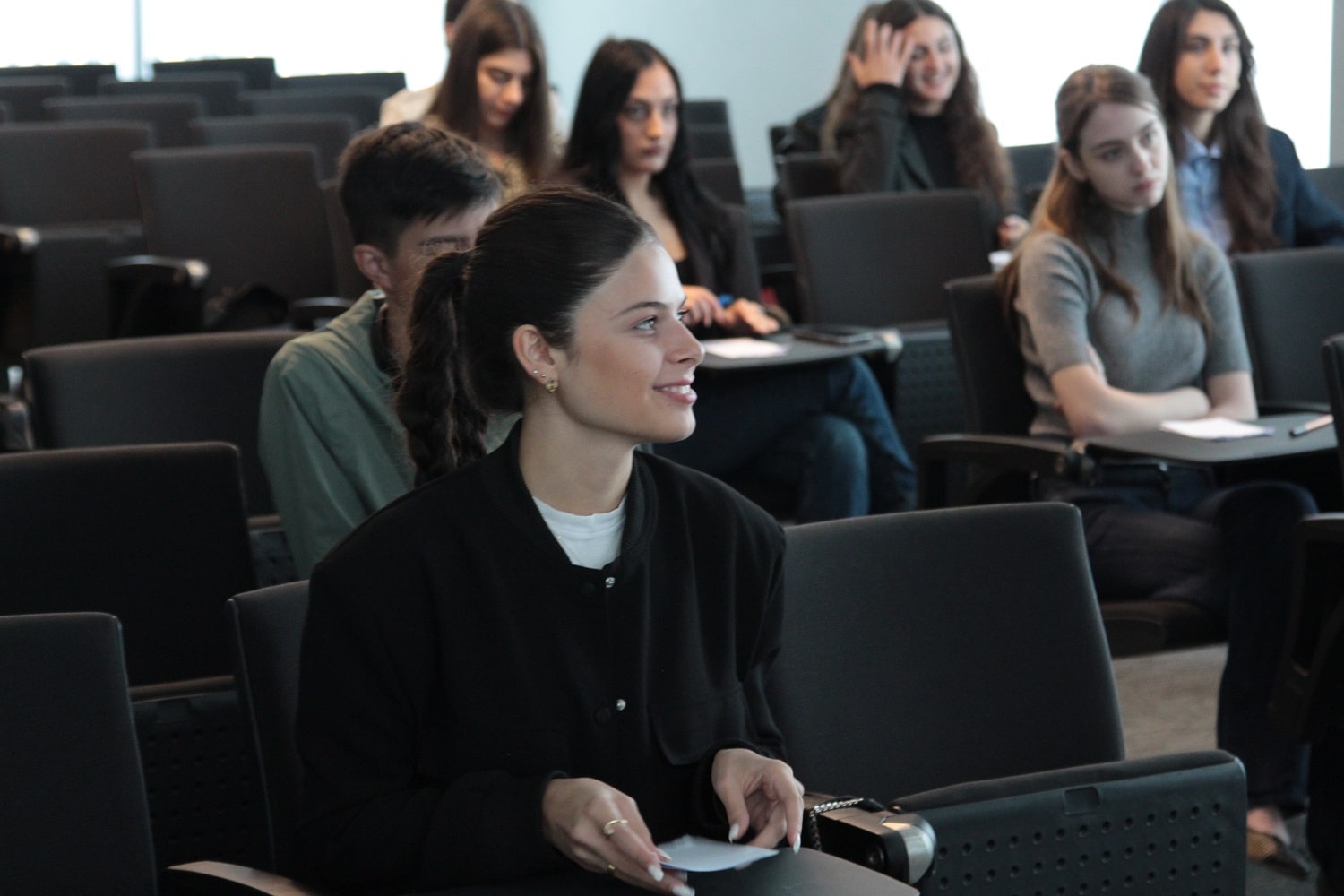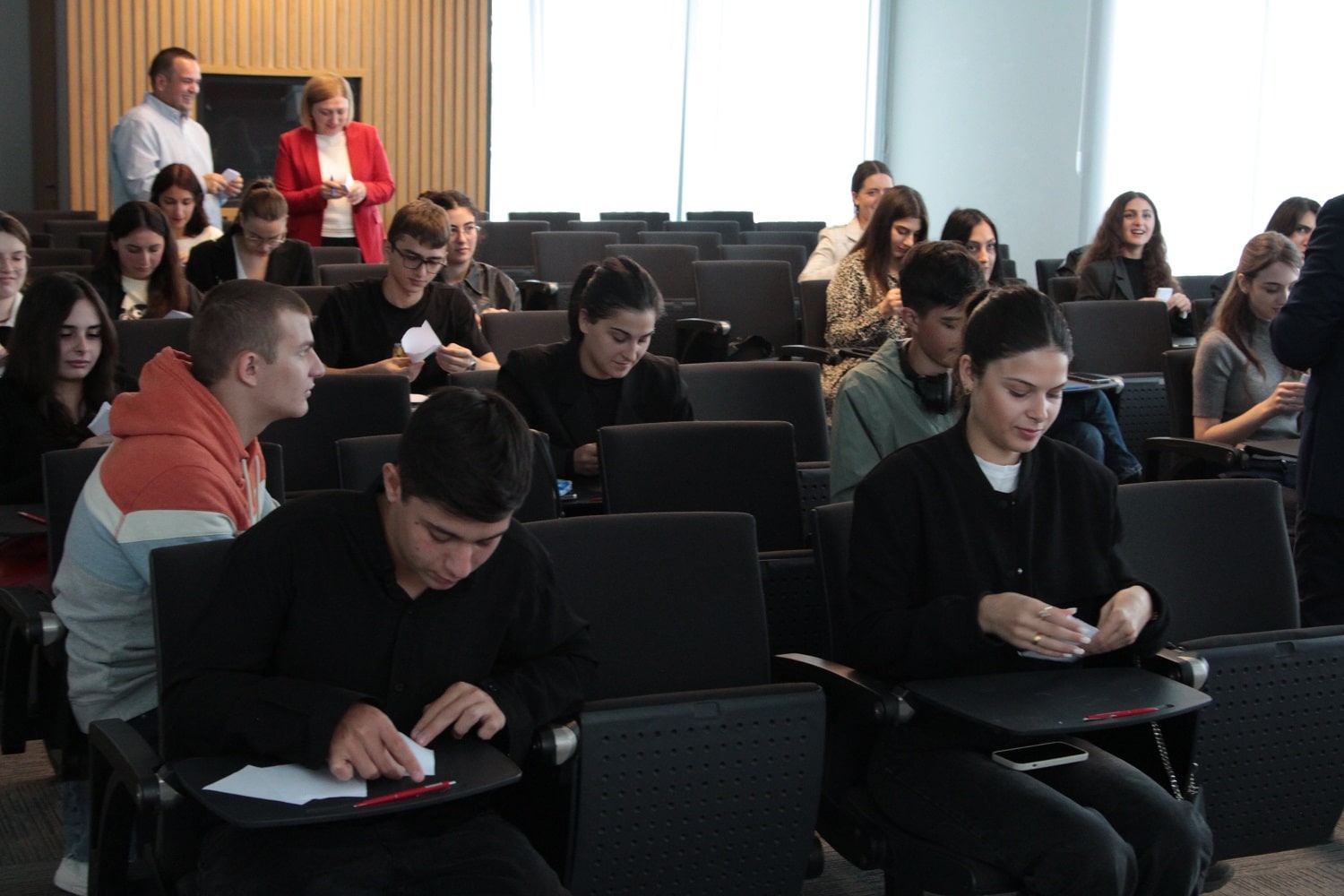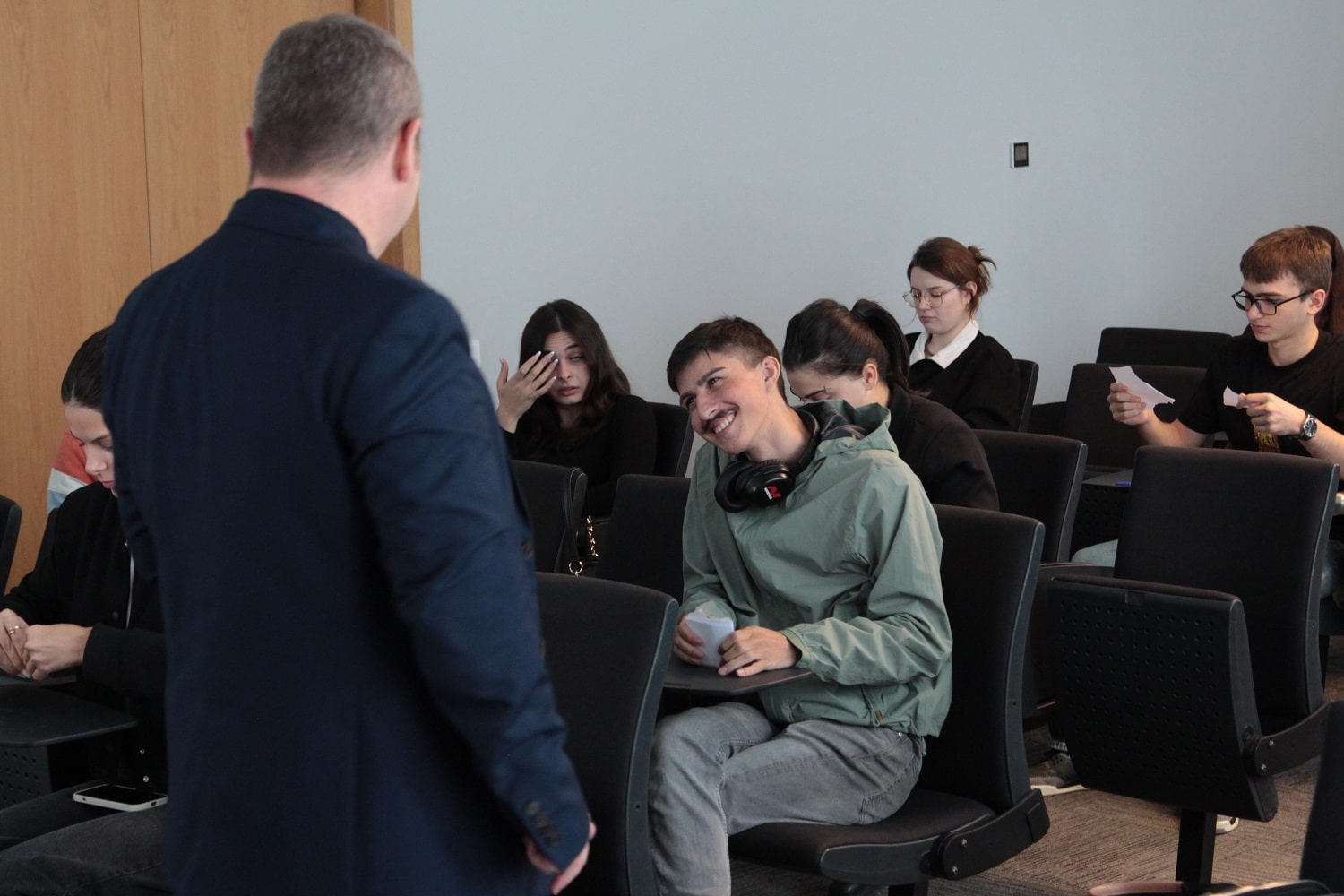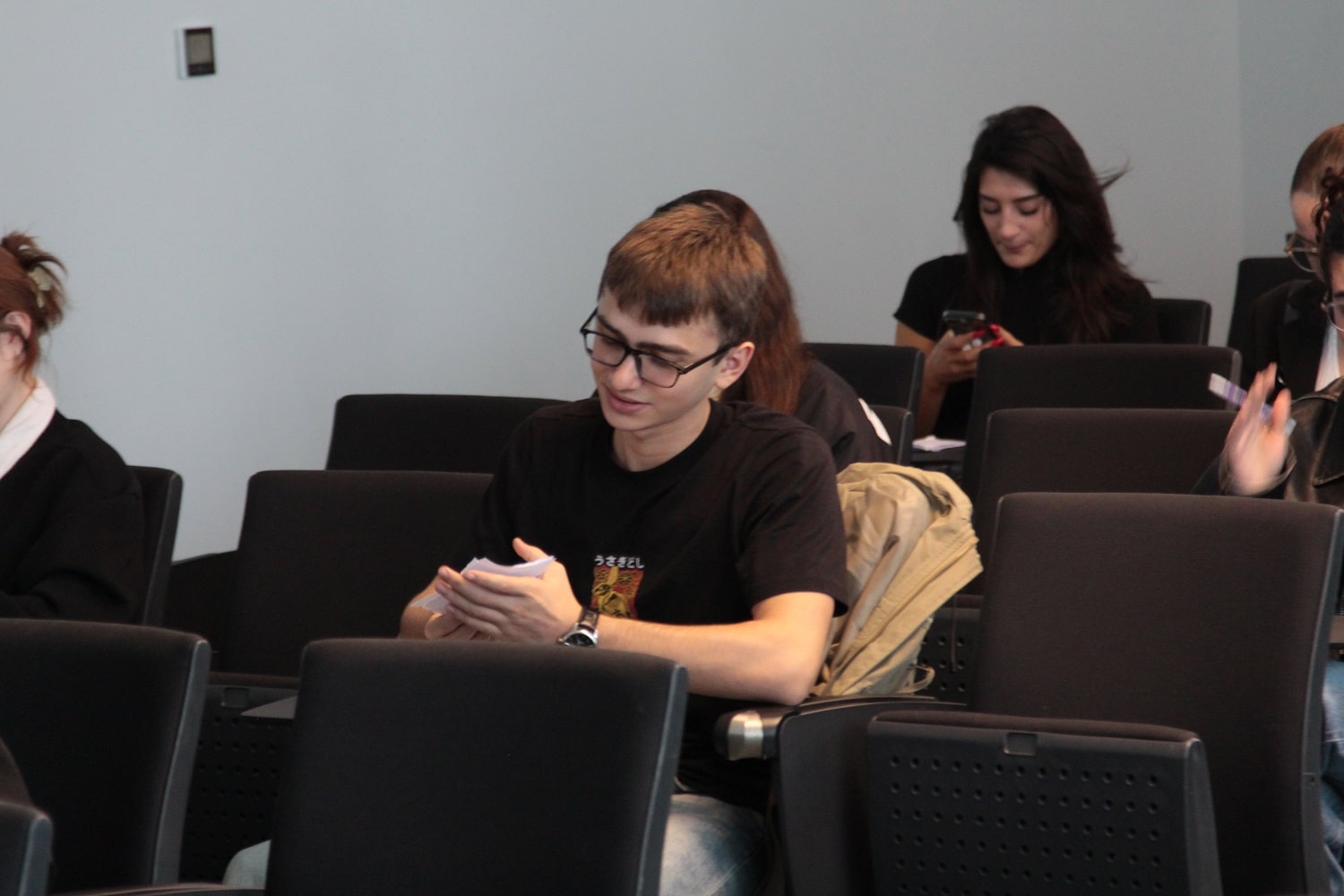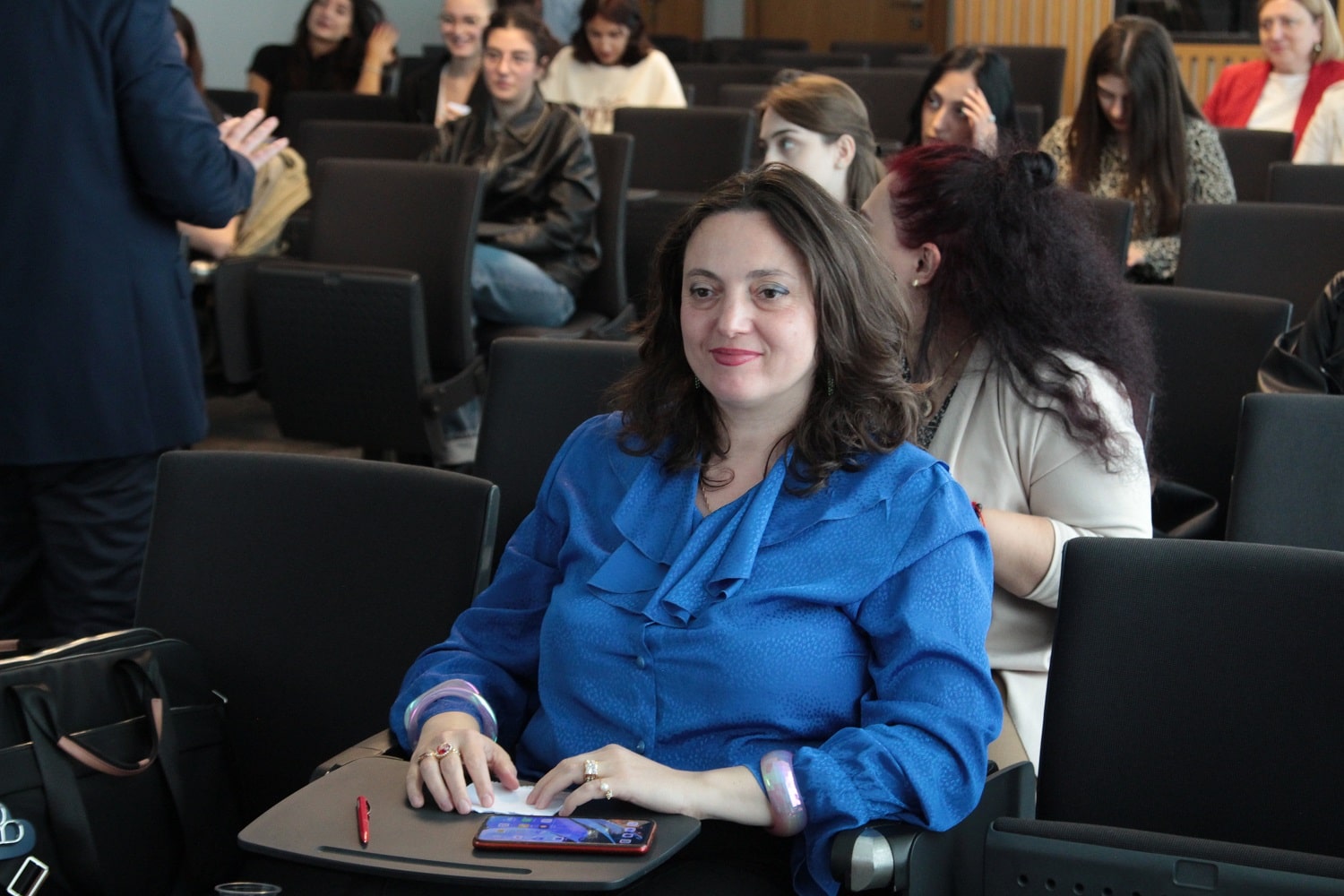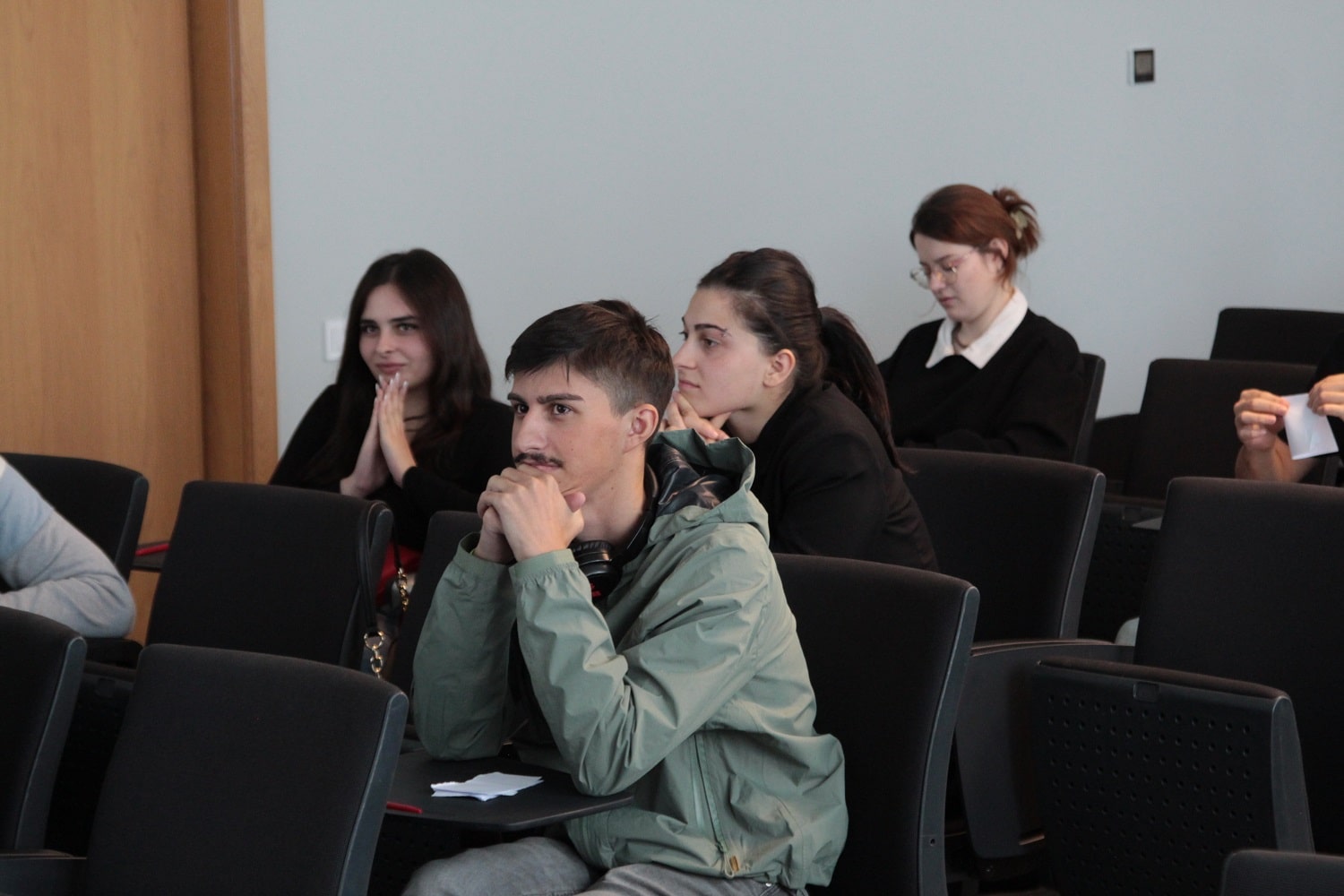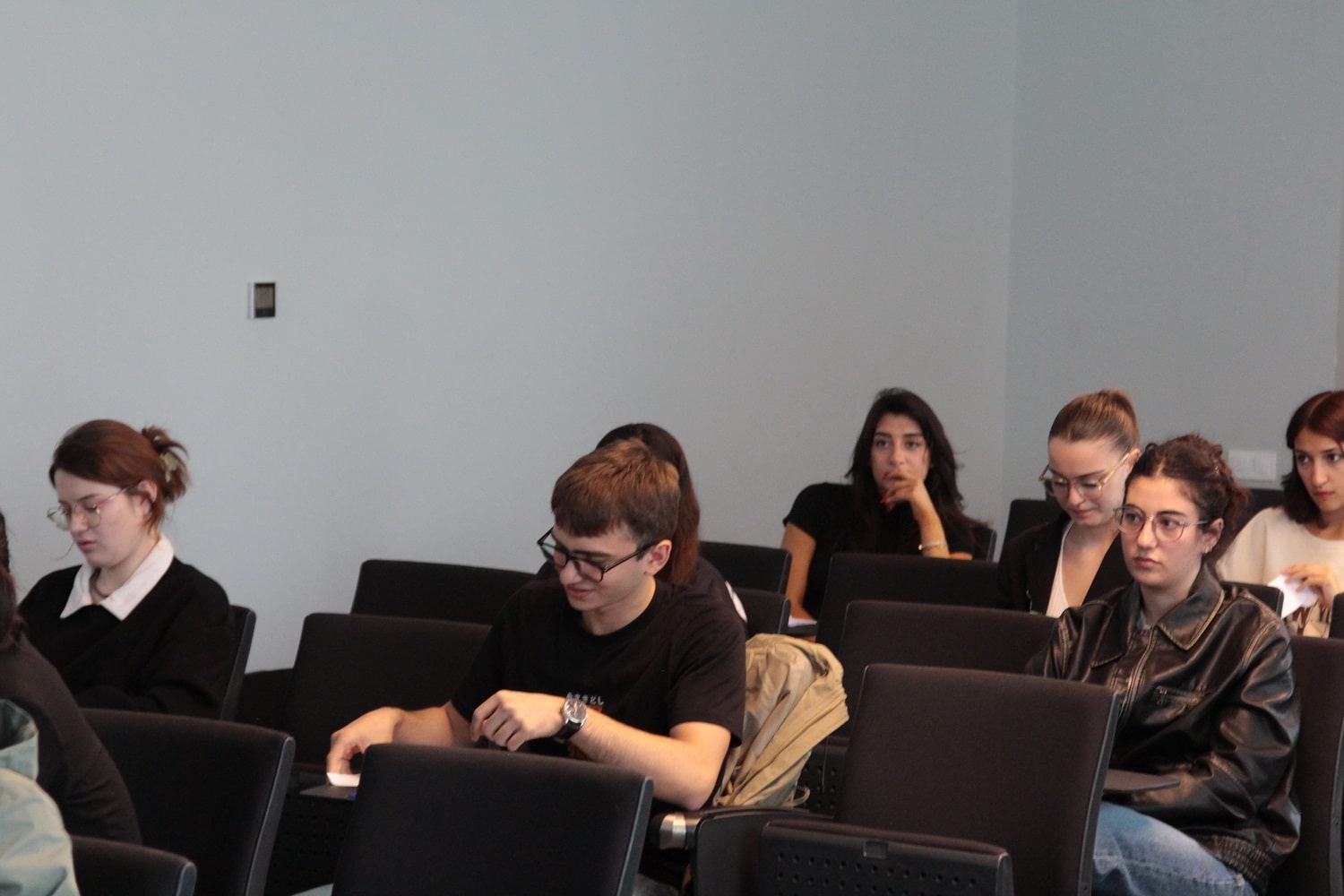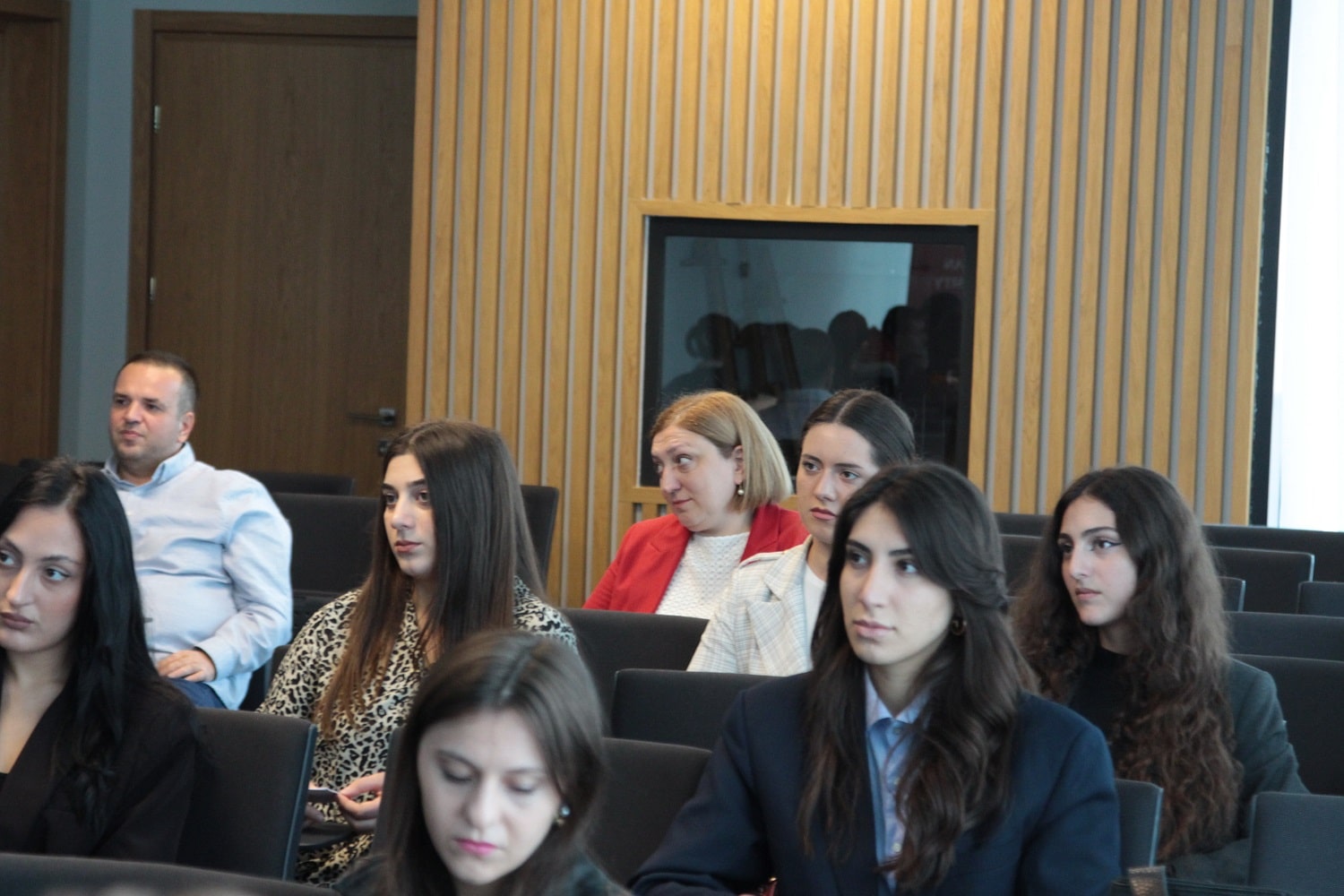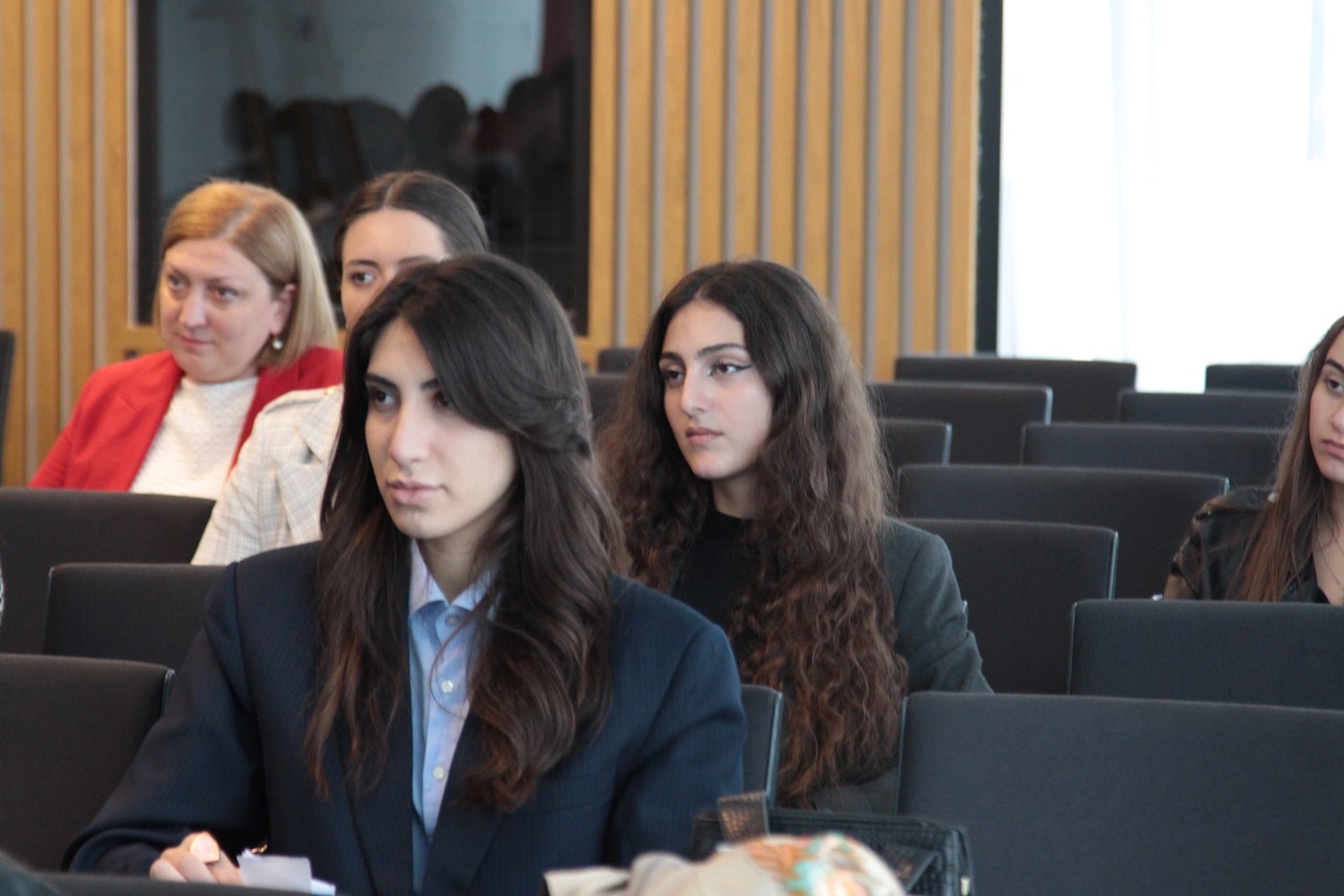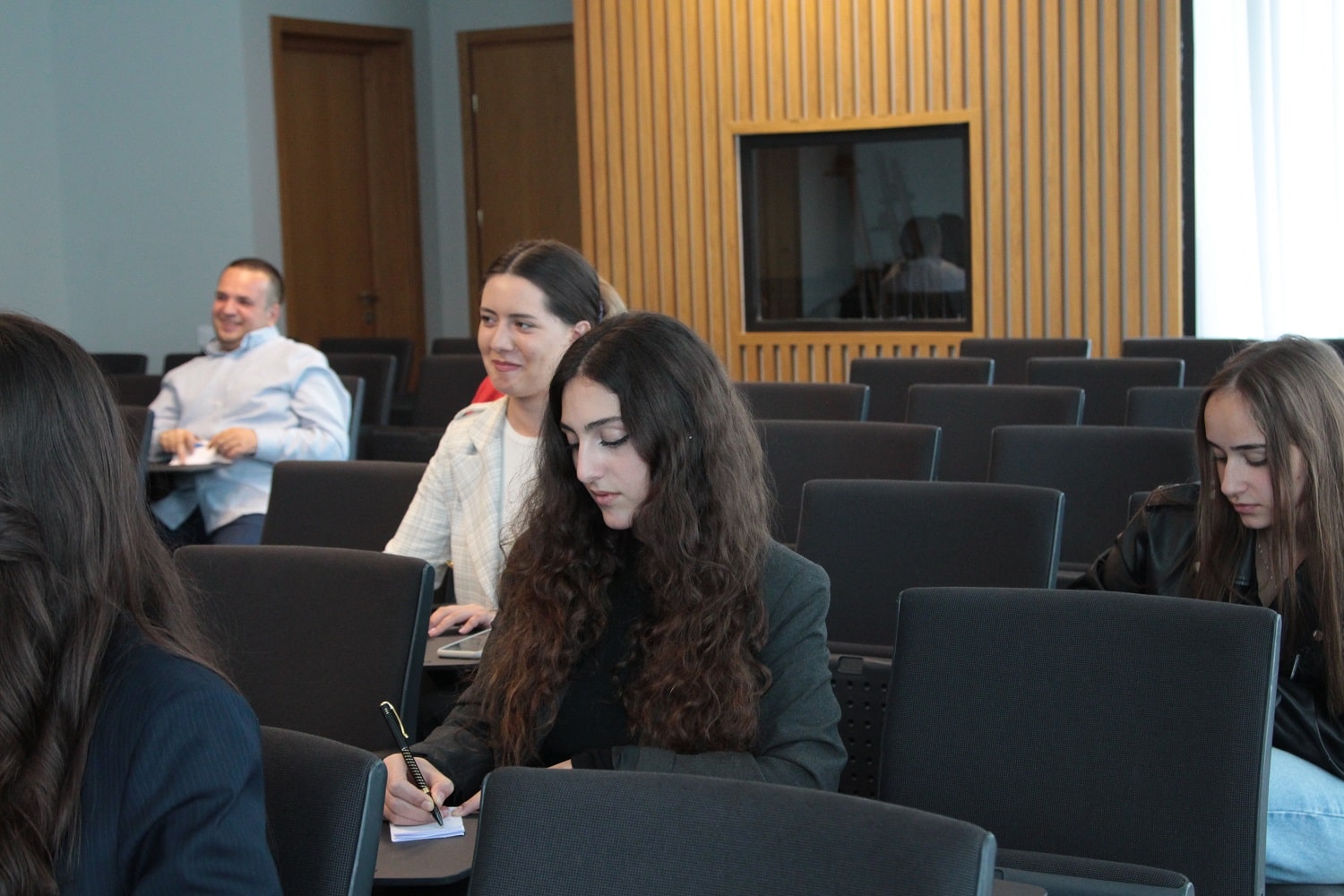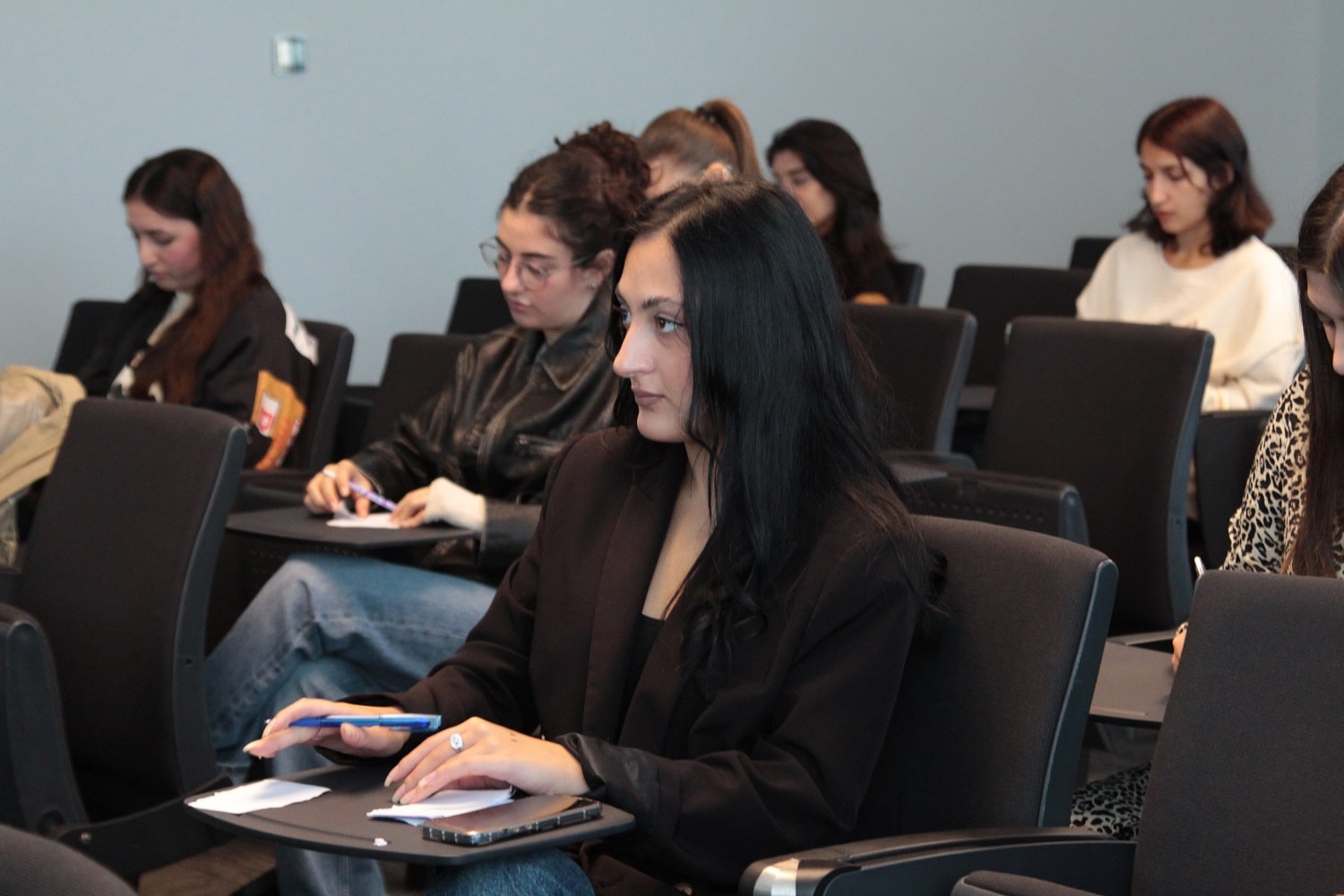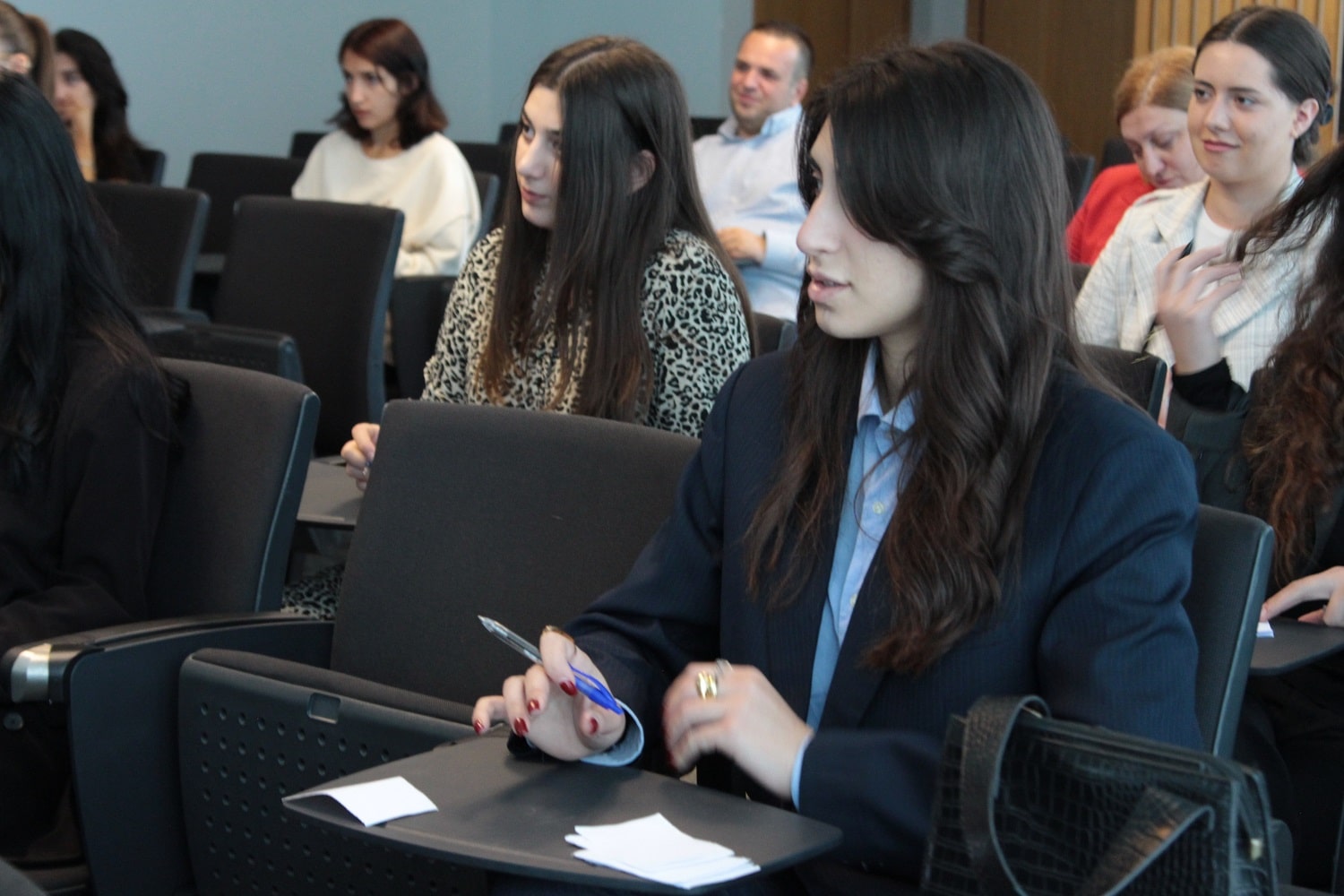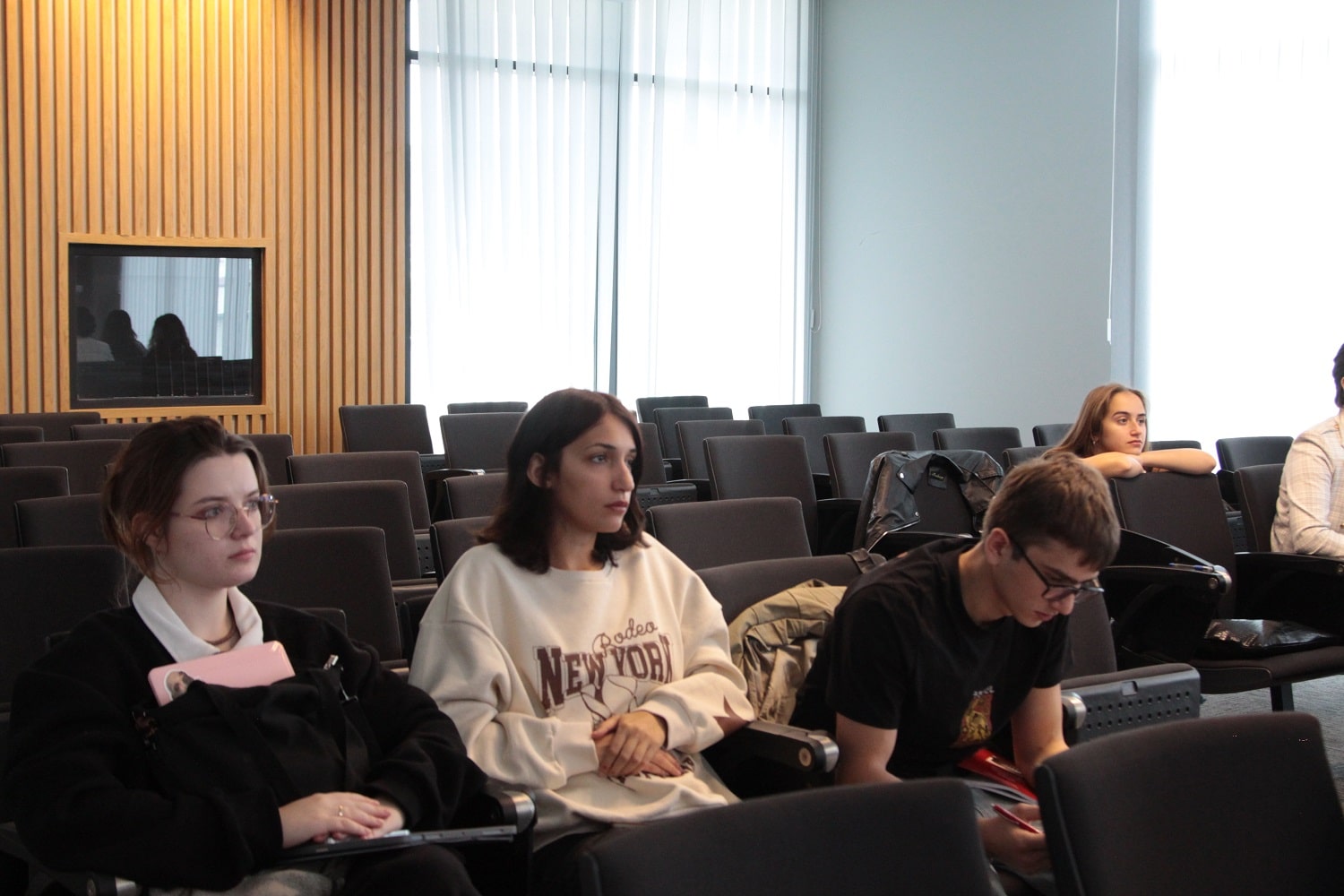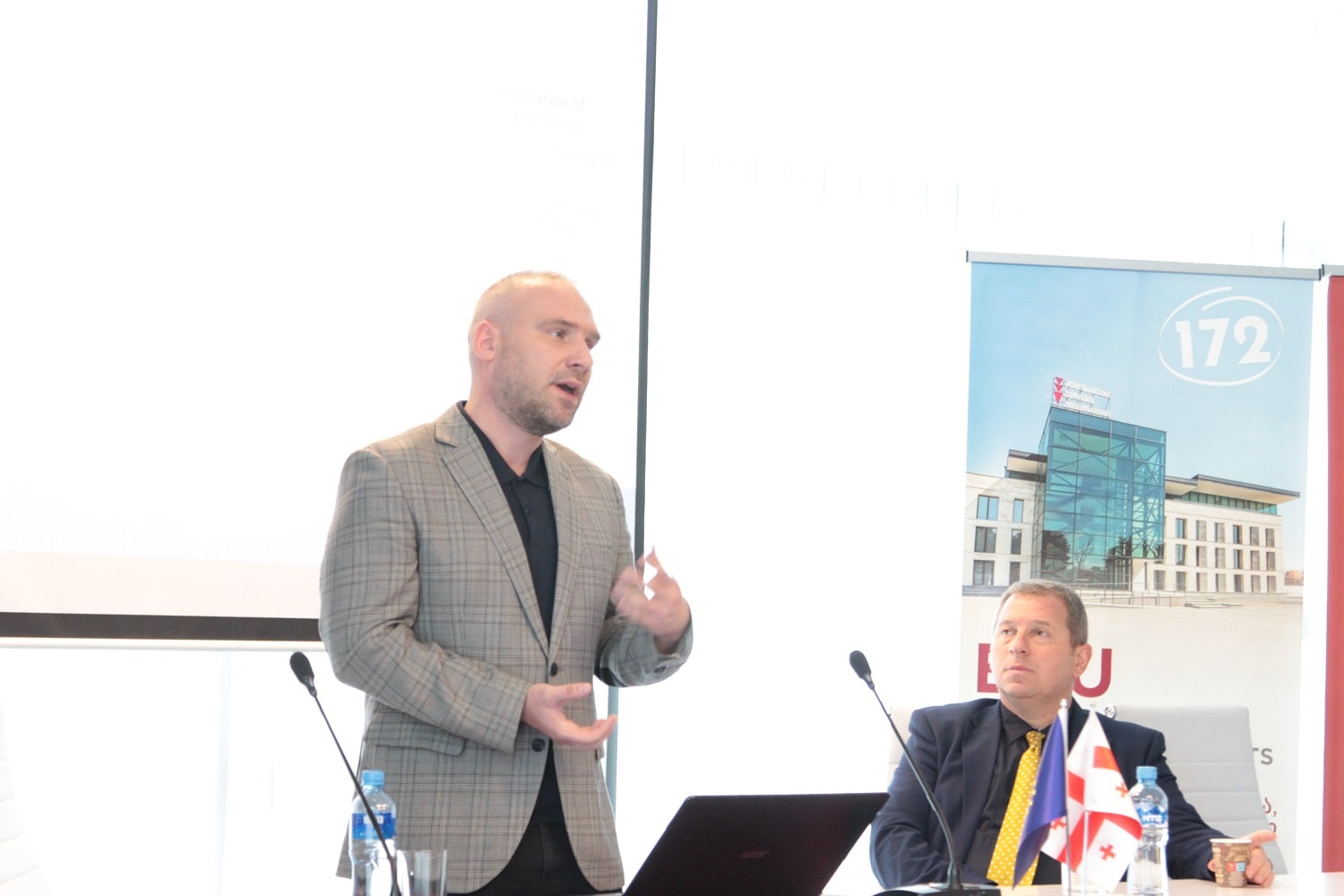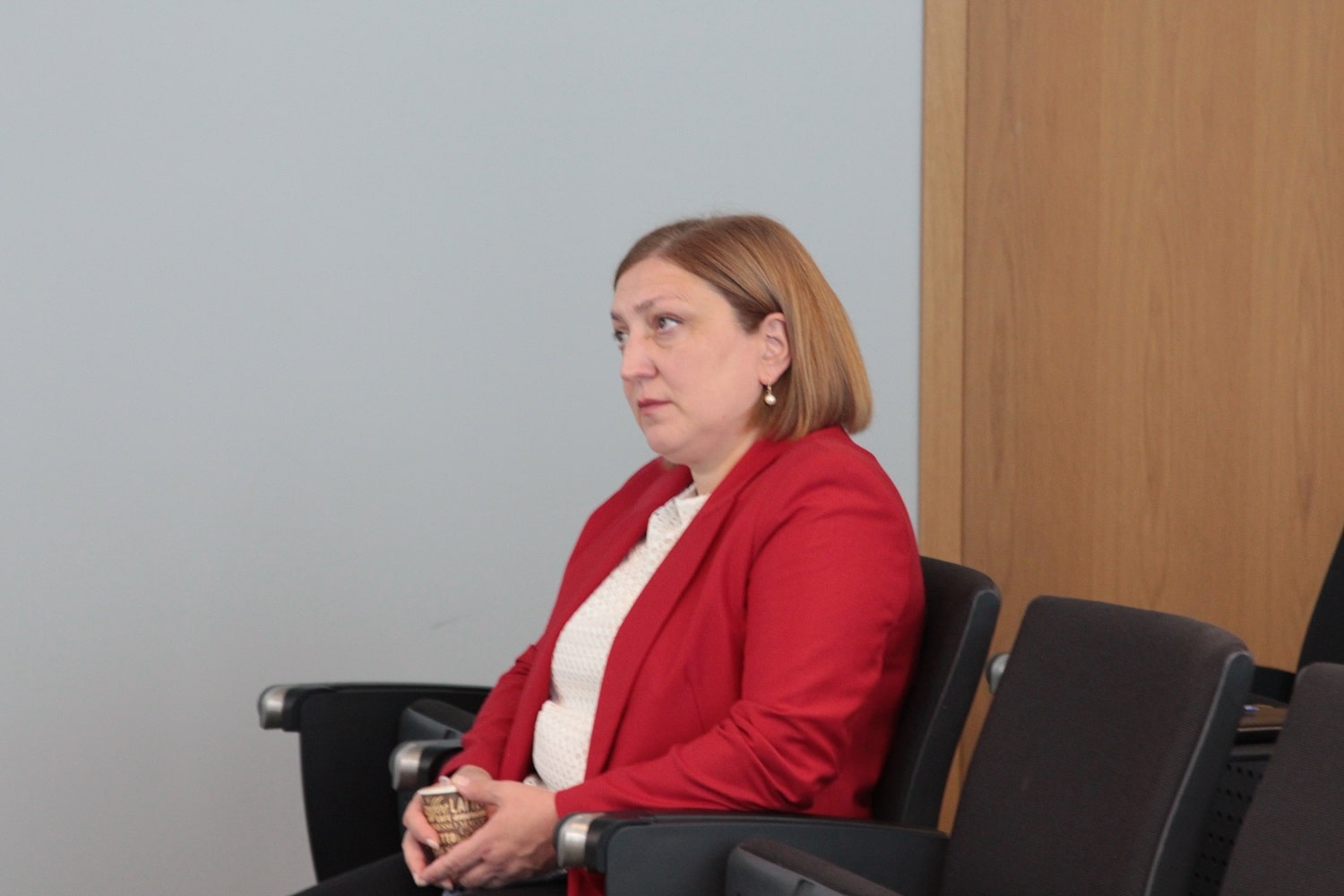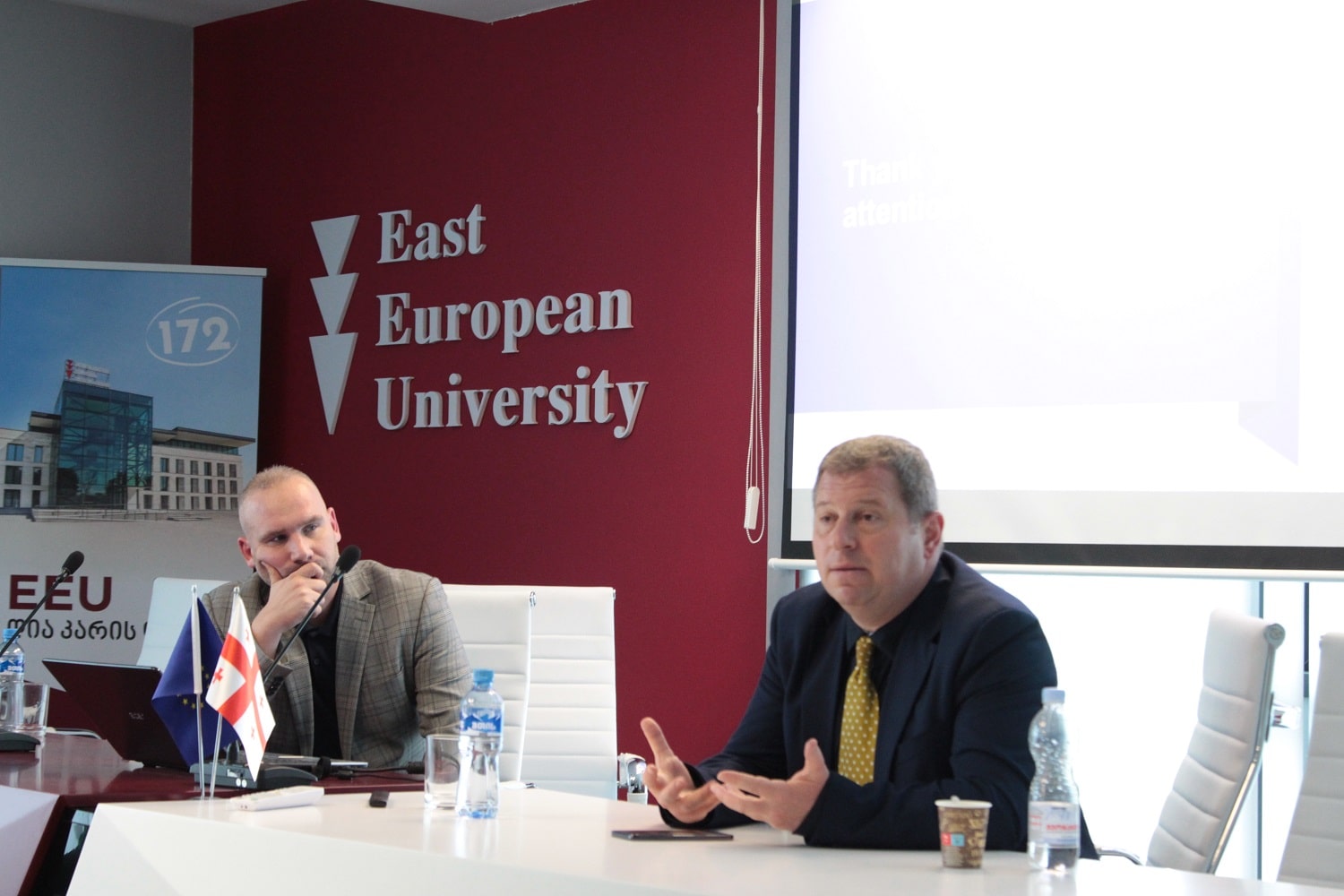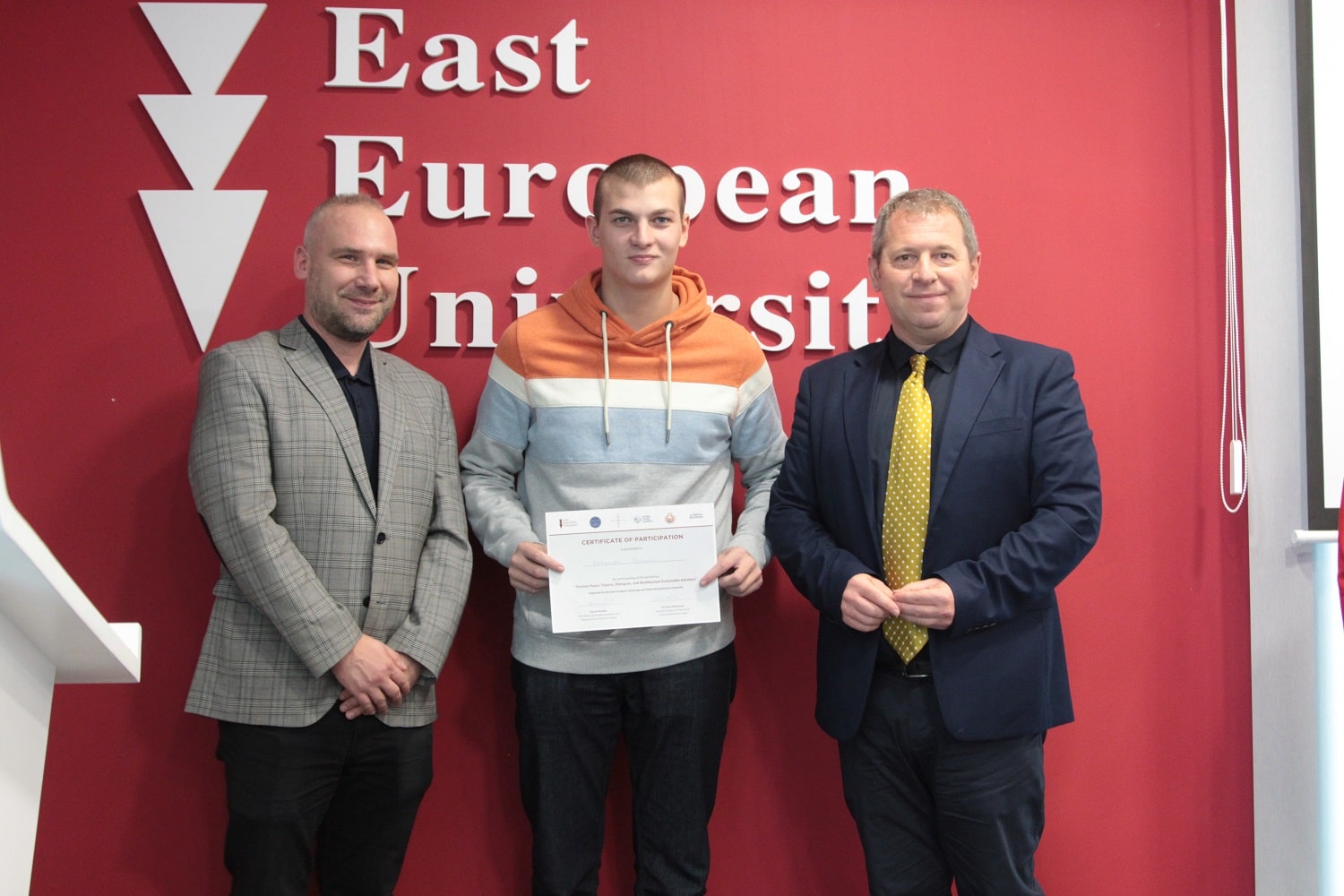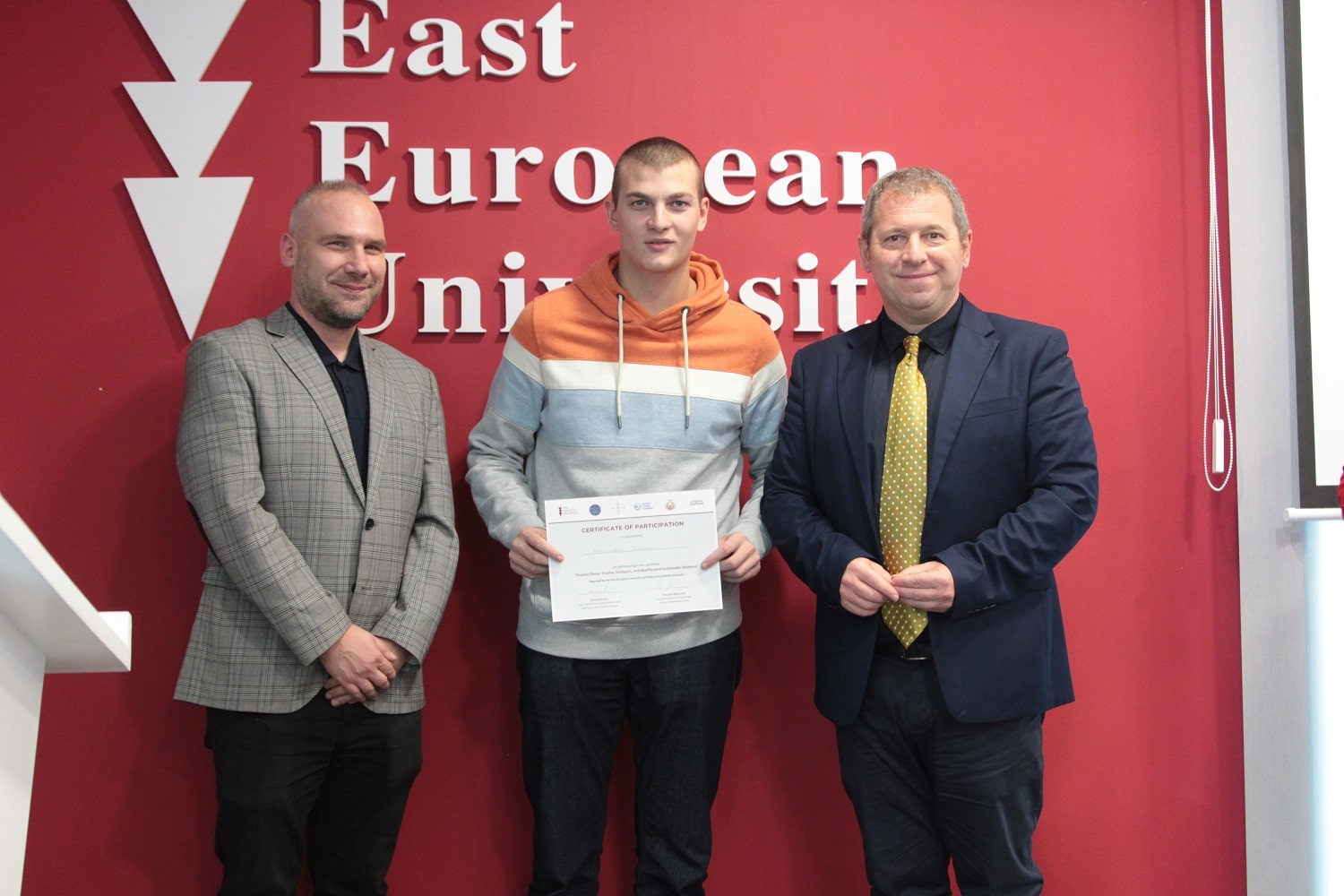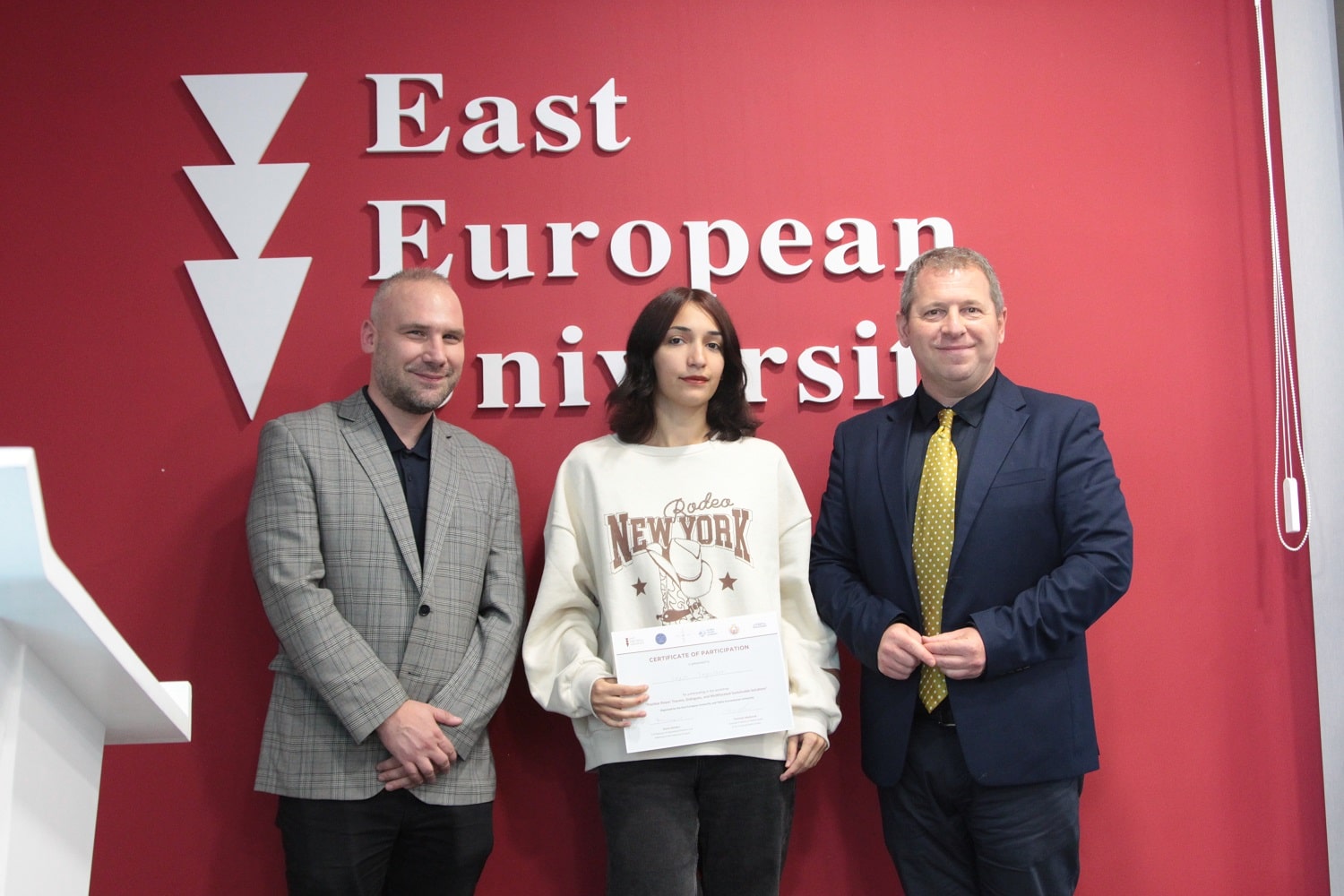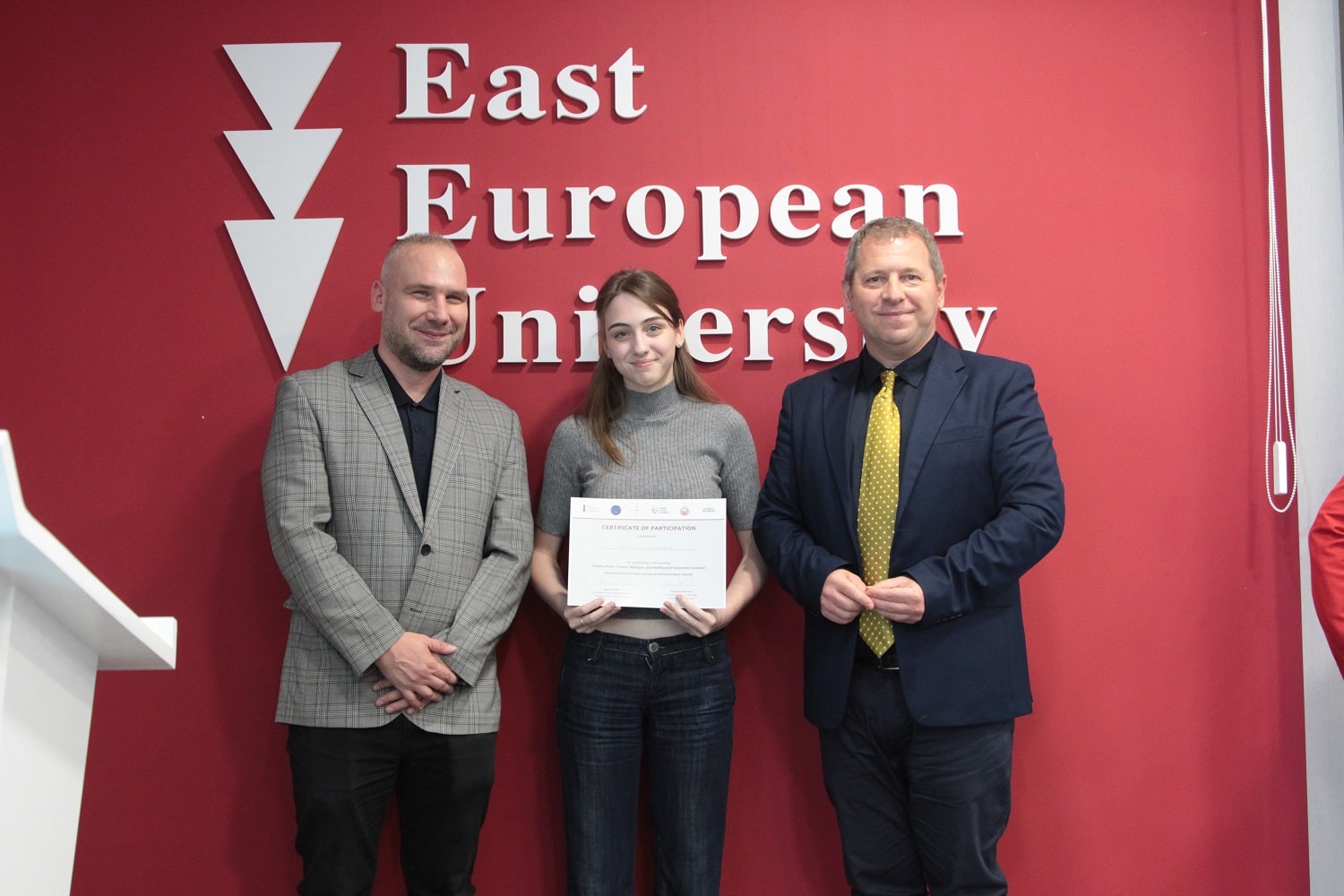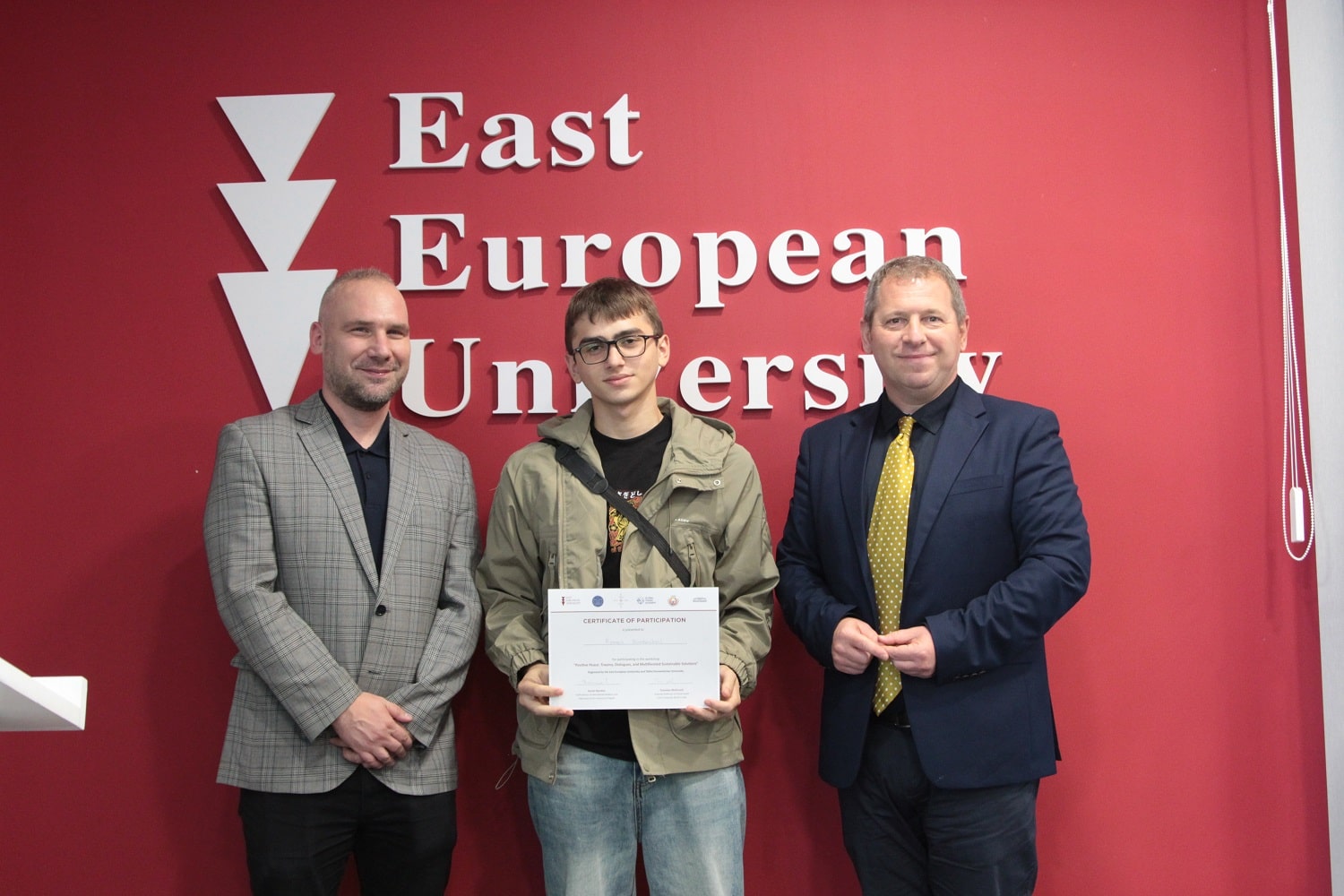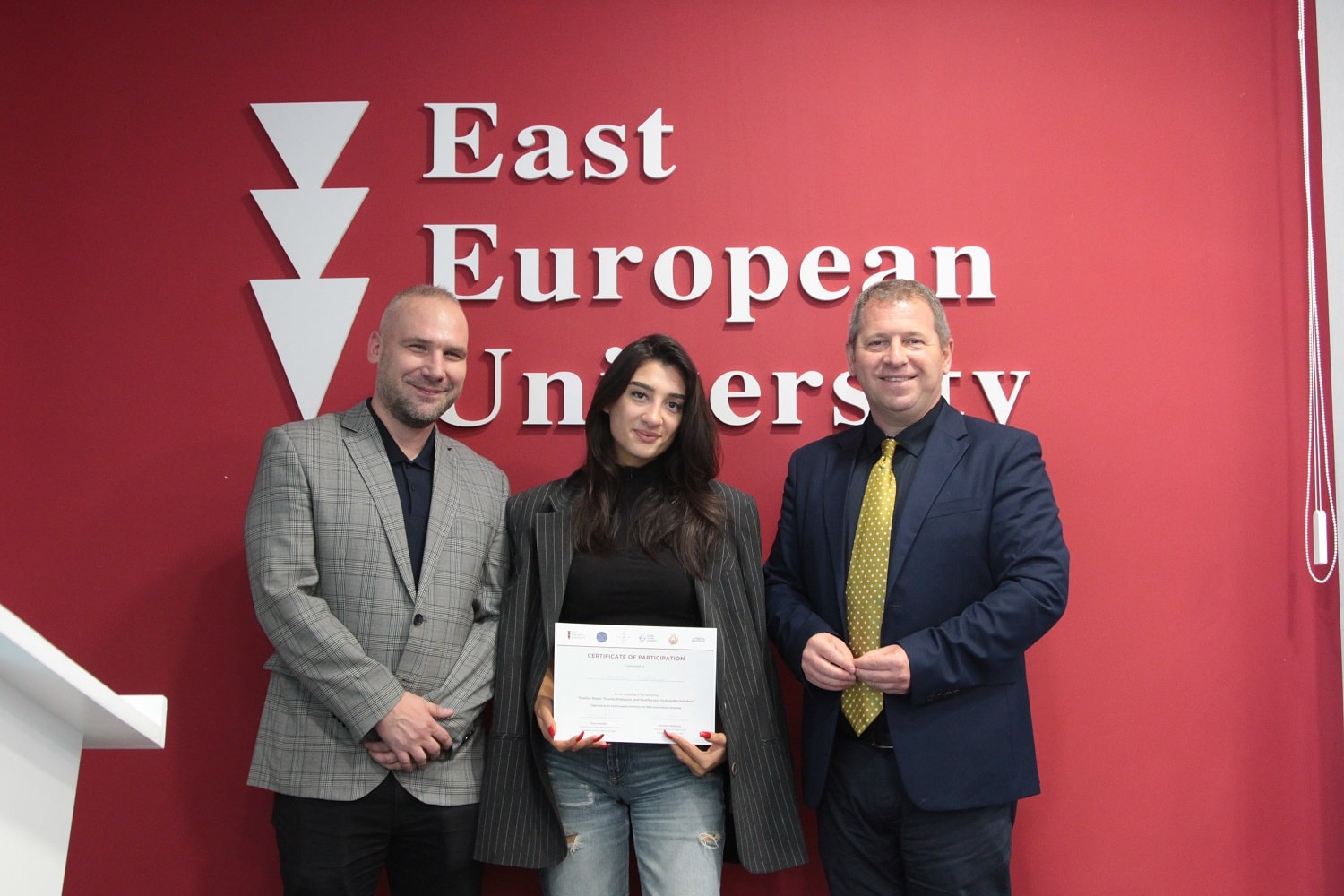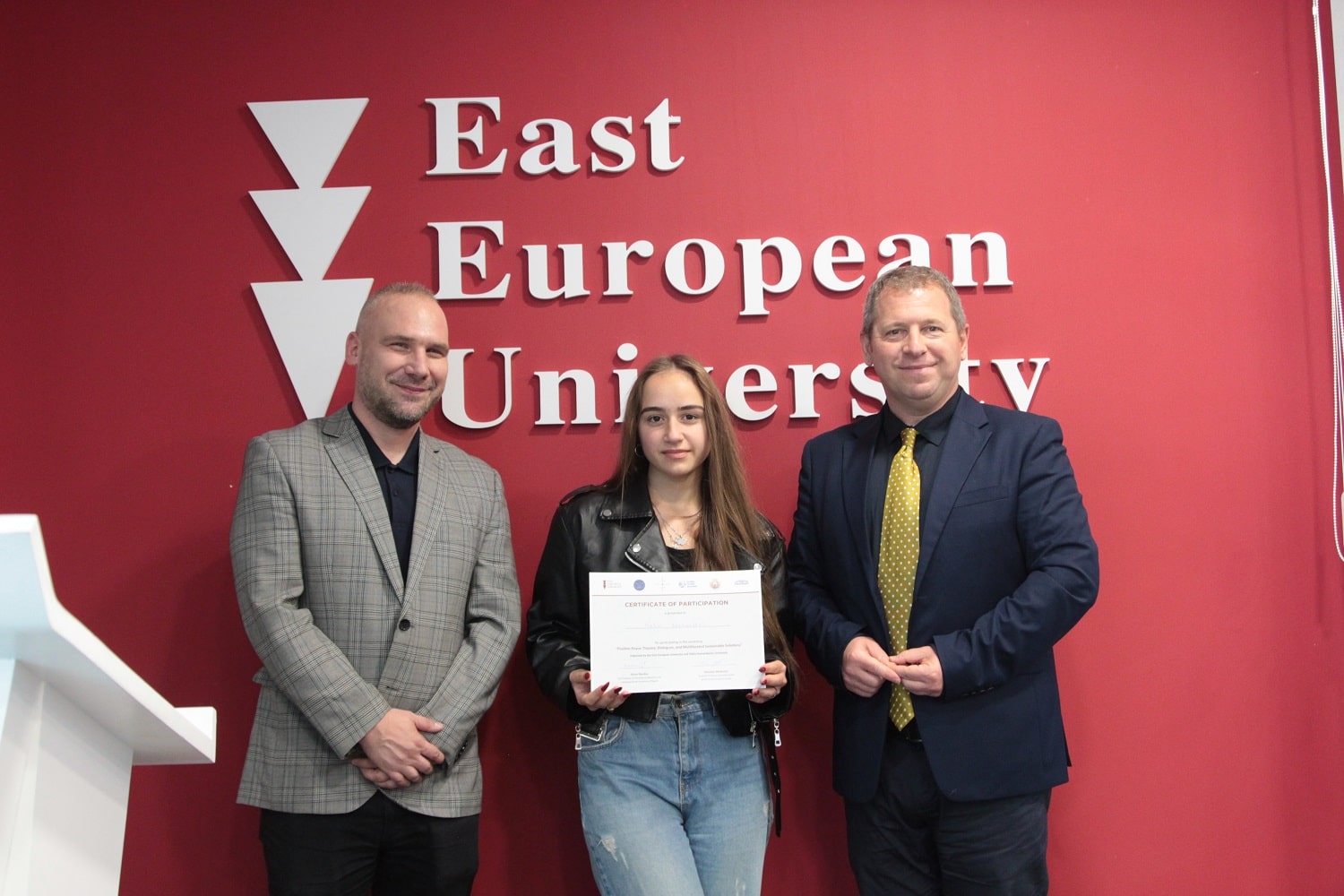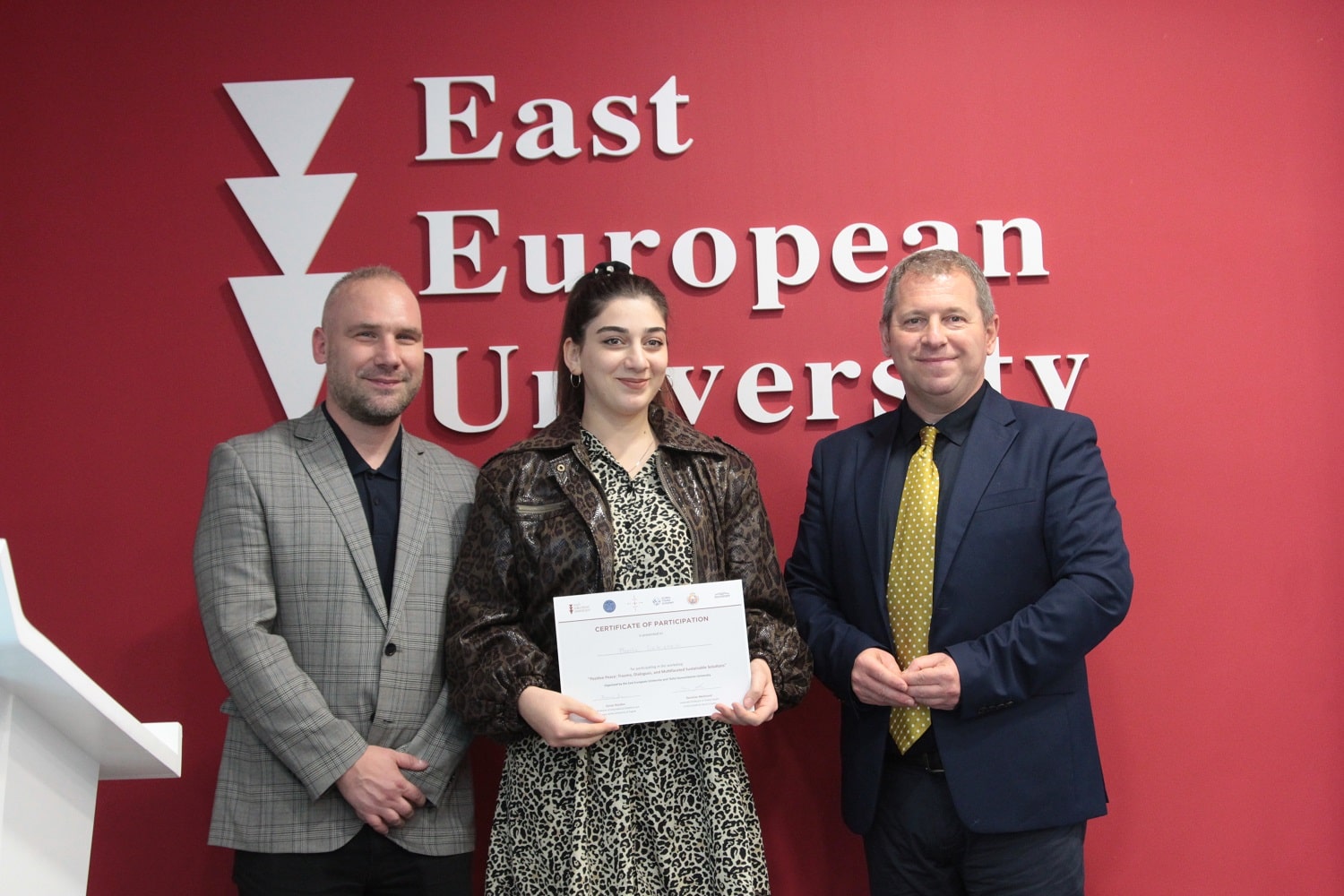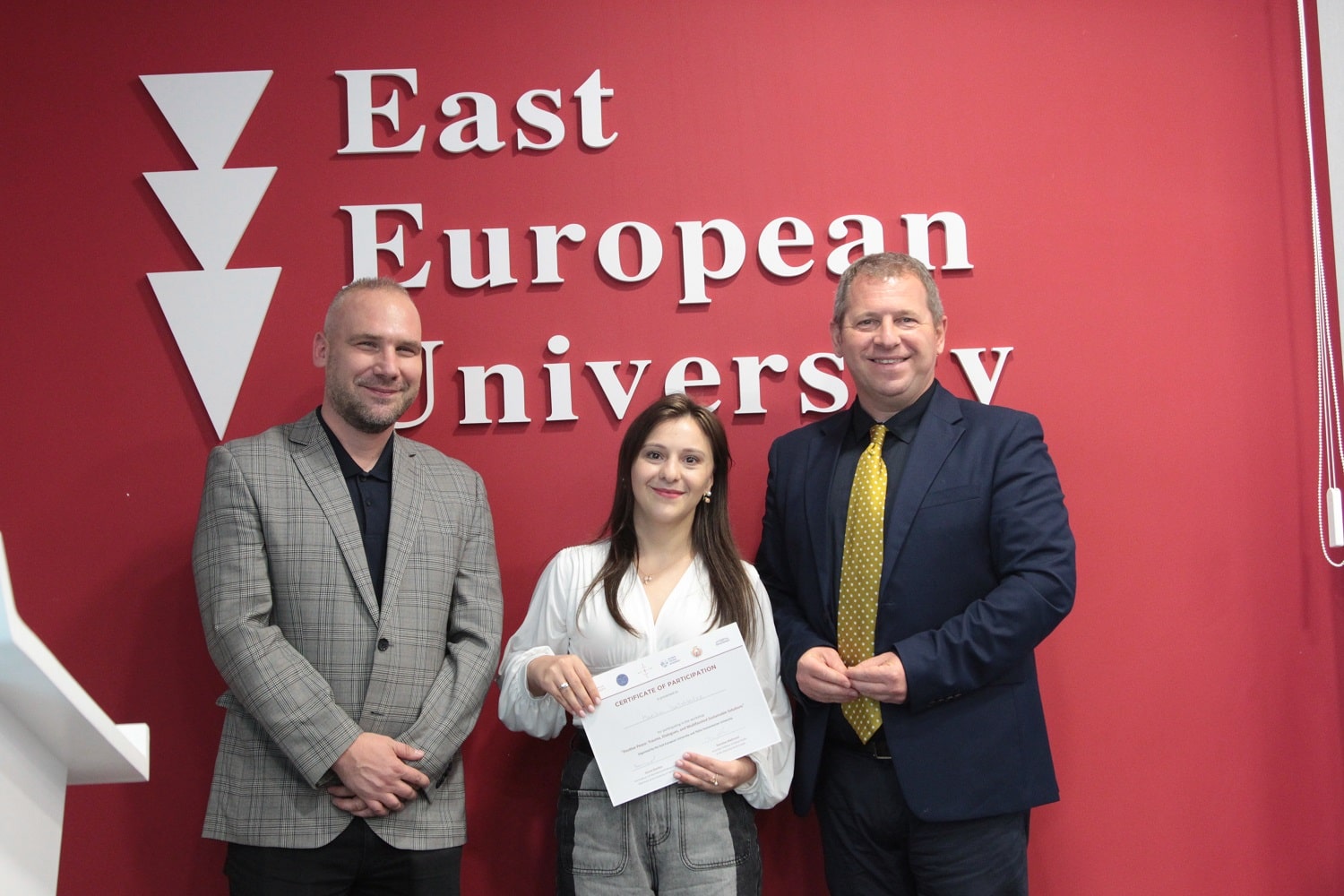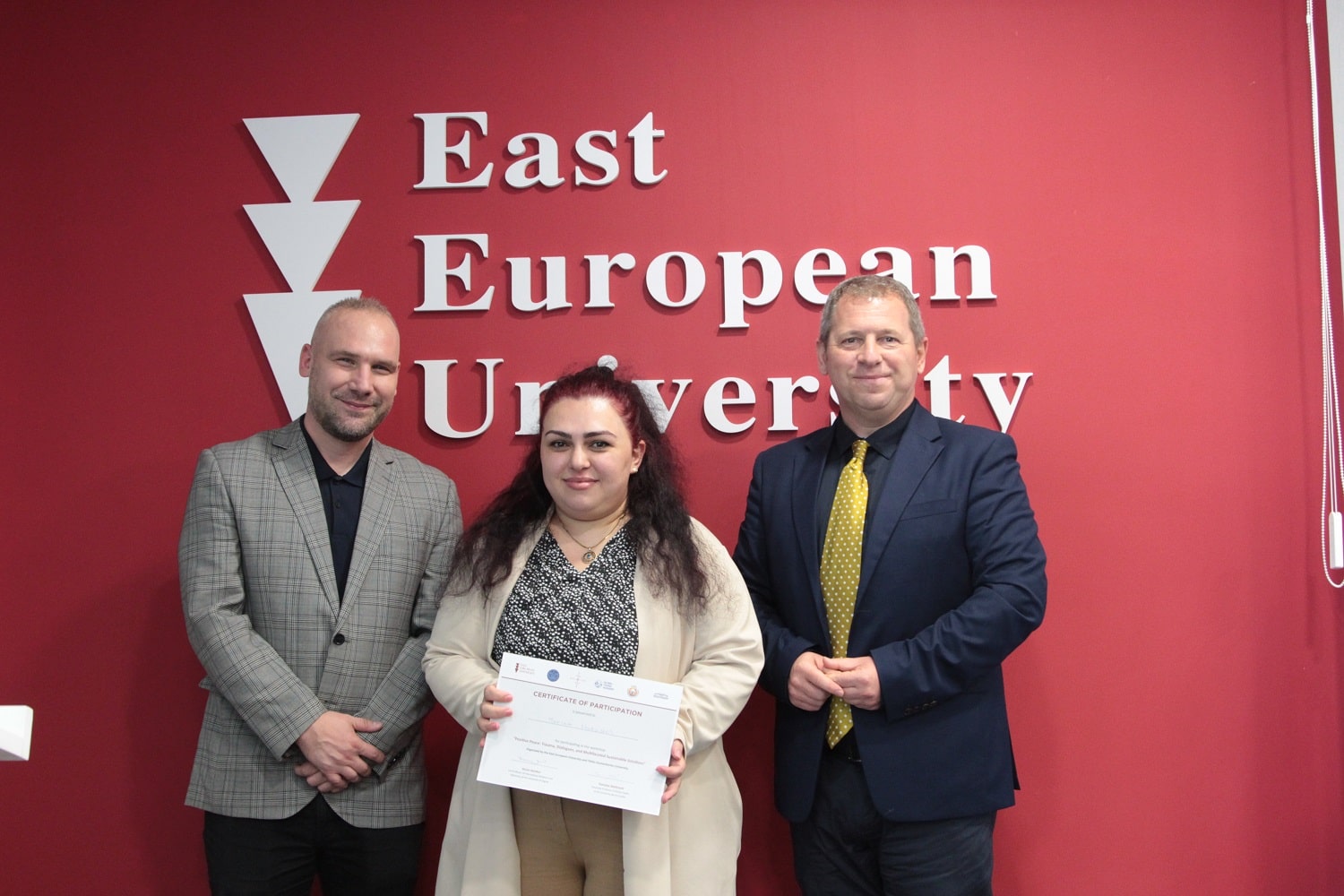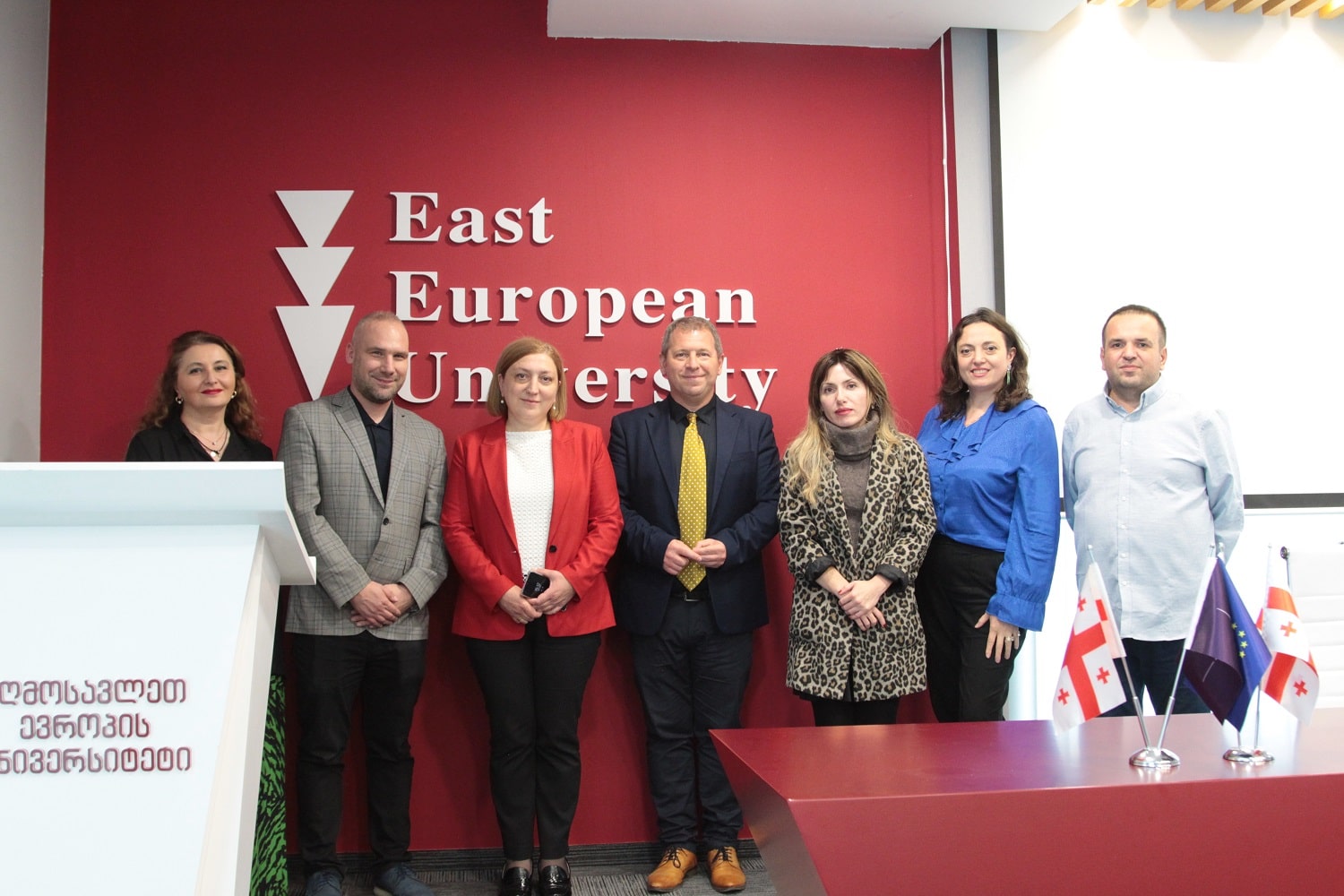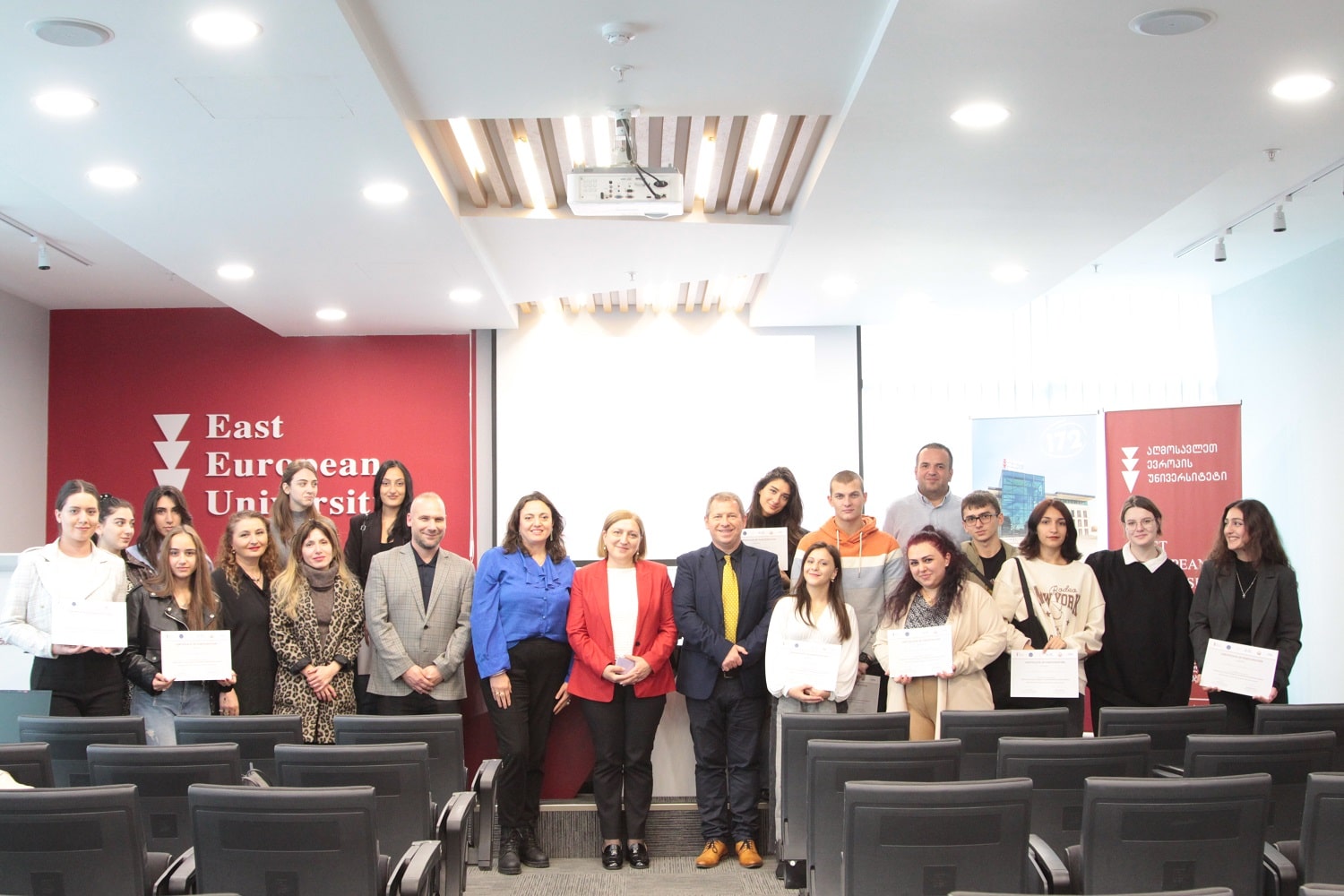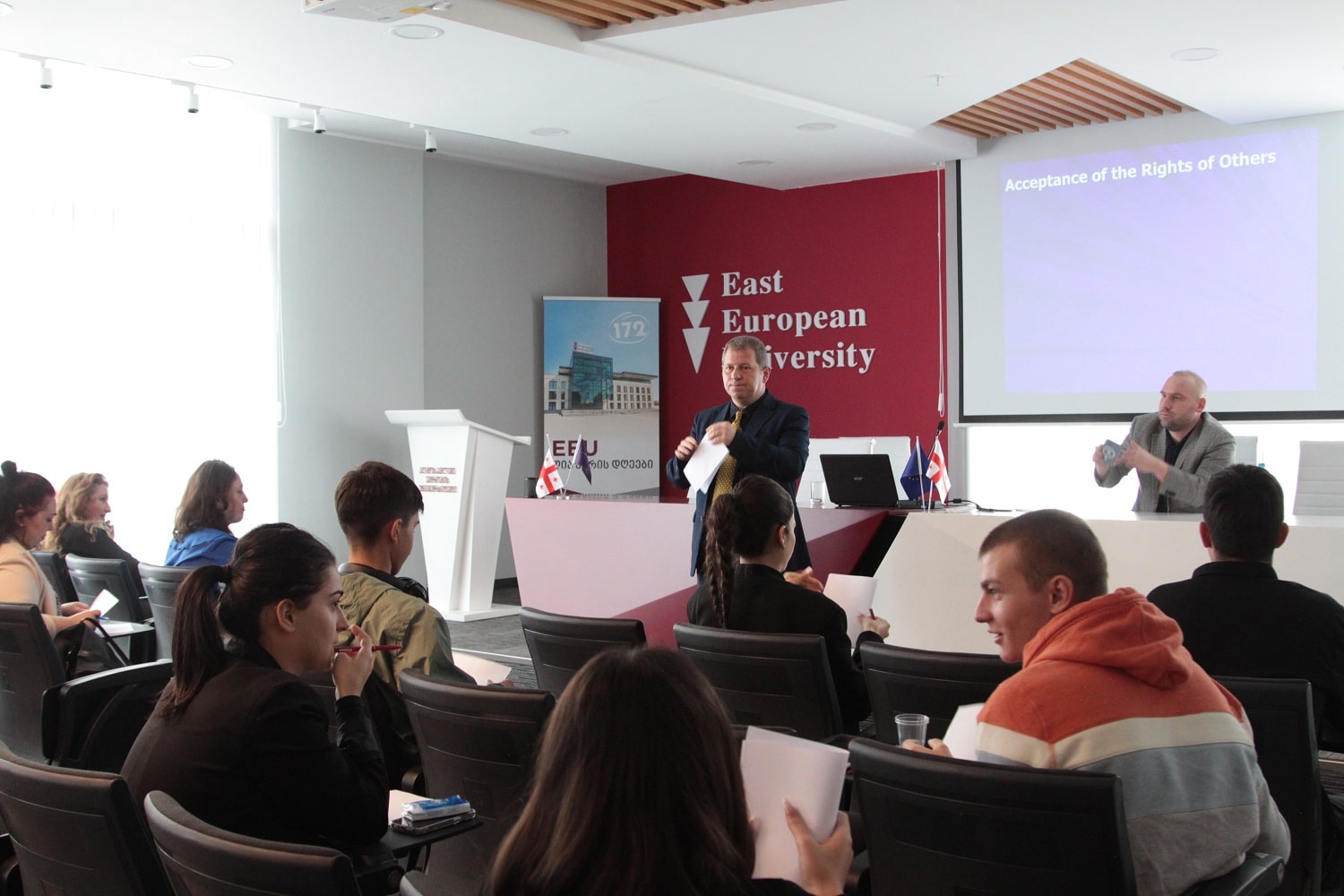
Workshop: “Positive Peace: Trauma, Dialogues, and Multifaceted Sustainable Solutions”
On October 2, 2024, a workshop titled “Positive Peace: Trauma, Dialogues, and Multifaceted Sustainable Solutions” was successfully held at East European University, with participation from students of East European University and Tbilisi Humanitarian University.
The event was organized by the Faculty of Economics, Business and Management of Tbilisi Humanitarian University and the Research and Development Department of East European University, in collaboration with the University of Zagreb (Croatia) and University North (Croatia). The event was held under the umbrella of the Global Young Academy and the COPE project (Erasmus+ KA220-ADV).
The workshop was divided into two main parts, both led by Full Professor Dr. Goran Bandov from the University of Zagreb in Croatia and Associate Professor Dr. Tomislav Meštrović from the University North in Croatia and the University of Washington School of Medicine. The first segment focusing on the concept of positive peace; drawing on the theories of Johan Galtung, the distinction between "negative peace" (the absence of violence or conflict) and "positive peace" (a sustainable and enduring state of societal harmony, strongly promoted by the Rotary International and the Institute for Economics and Peace) was introduced. This segment of the workshop emphasized the critical role of resilience, non-violence and the systemic nature of positive peace, which includes economic stability, well-functioning institutions, equitable distribution of resources, as well as the protection of human rights. Eight pillars of positive peace as indispensable factors to build lasting peace were highlighted, framed in the context of historical reconciliation and drawing comparisons with the peaceful reintegration of the Croatian Danube Basin.
The second part of the workshop focused on trauma-informed care and its importance in both formal and informal educational settings. This session drew on insights from the COPE project (Cooperation in Adult Education for Traumatised Learners), an Erasmus+ initiative that addresses the educational needs of refugee and displaced populations through trauma-informed pedagogical frameworks. Participants were introduced to the principles of trauma-informed care – including safety, trustworthiness, peer support, collaboration, empowerment and cultural respect. This segment of the workshop stressed the importance of creating learning environments that not only recognize the impacts of trauma on learners but also foster resilience and healing.
The workshop successfully combined theoretical insights on peace with the practical application of trauma-informed approaches in education, providing students with the tools to foster both personal and community resilience (as well as personal growth). Through group activities, role-playing scenarios and case studies, participants gained practical insights into what does it entail to sustain peace and how we can respond to trauma in a way that promotes healing while preventing re-traumatization.
At the end of the workshop, participating students were awarded certificates.
Similar News
Public Lecture on - Regulations that hinder the democratic development of the country
On June 1, 2020, at 16:00, the Faculty of Law of Tbilisi Humanitarian University will hold an online public lectur...
DetailOnline training will be held on Friday, October 2 at 18:00
On Friday, October 2, at 18:00, a training will be held on the topic - aspects of analyzing research resul...
Detail


